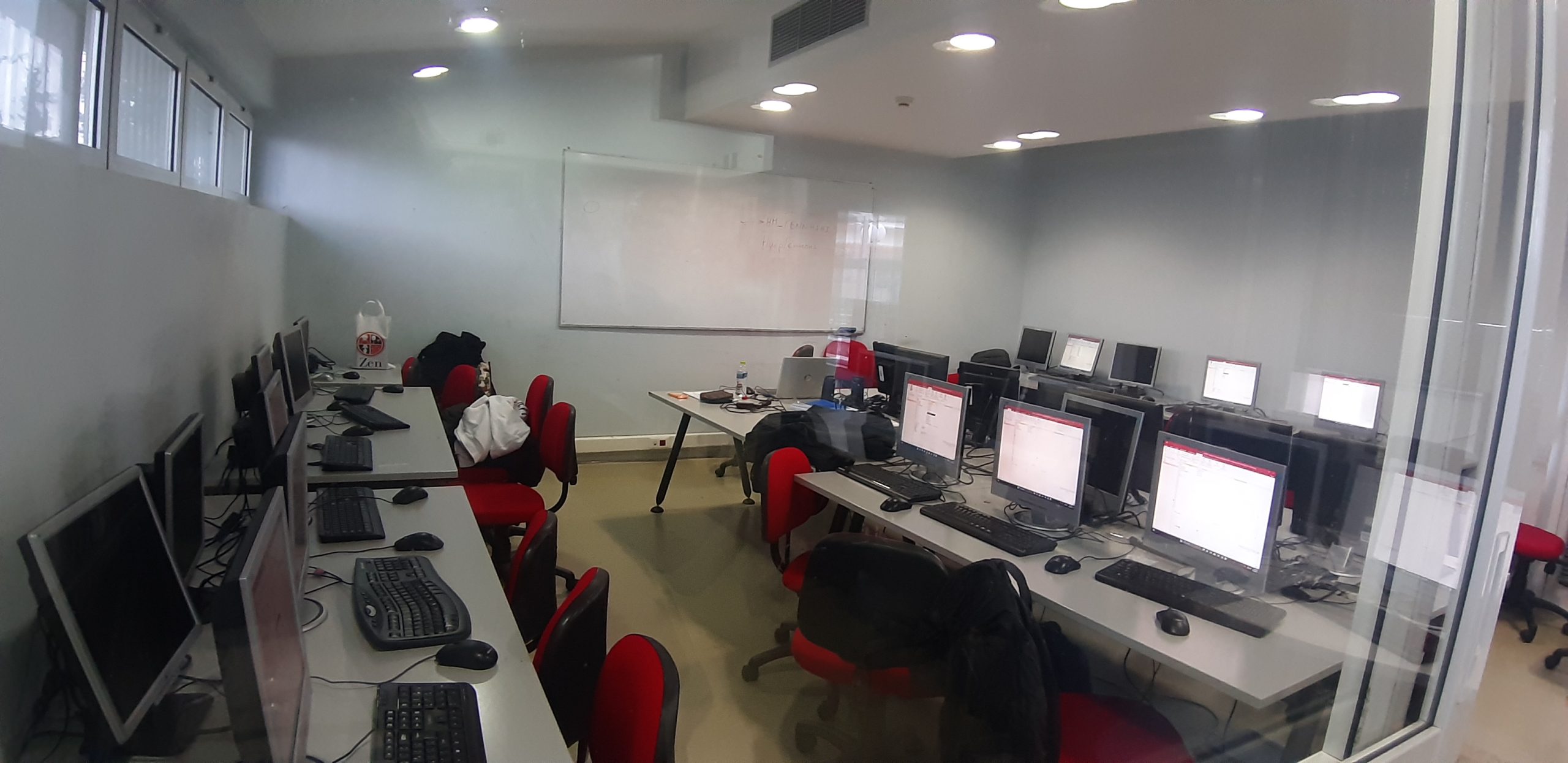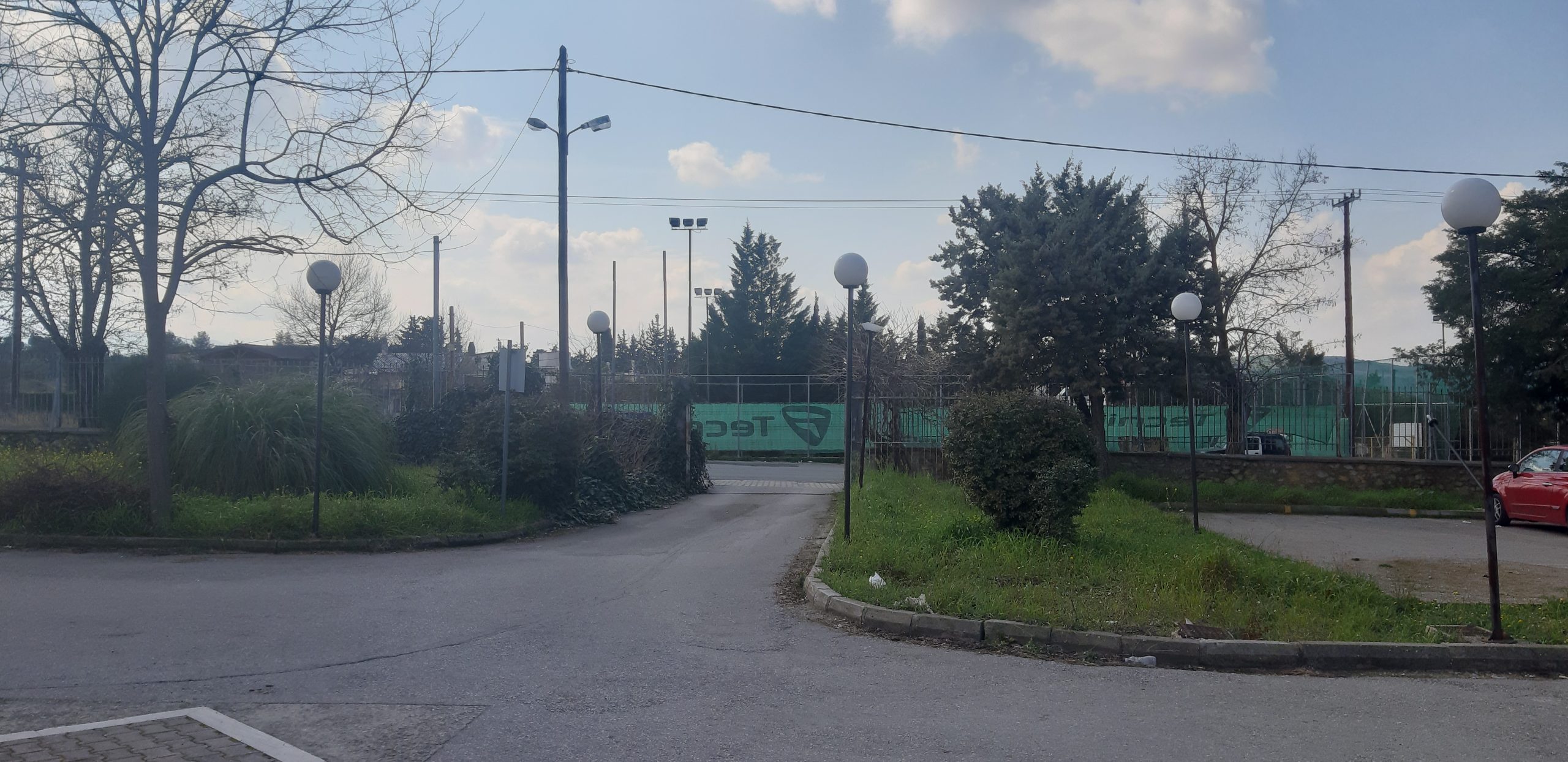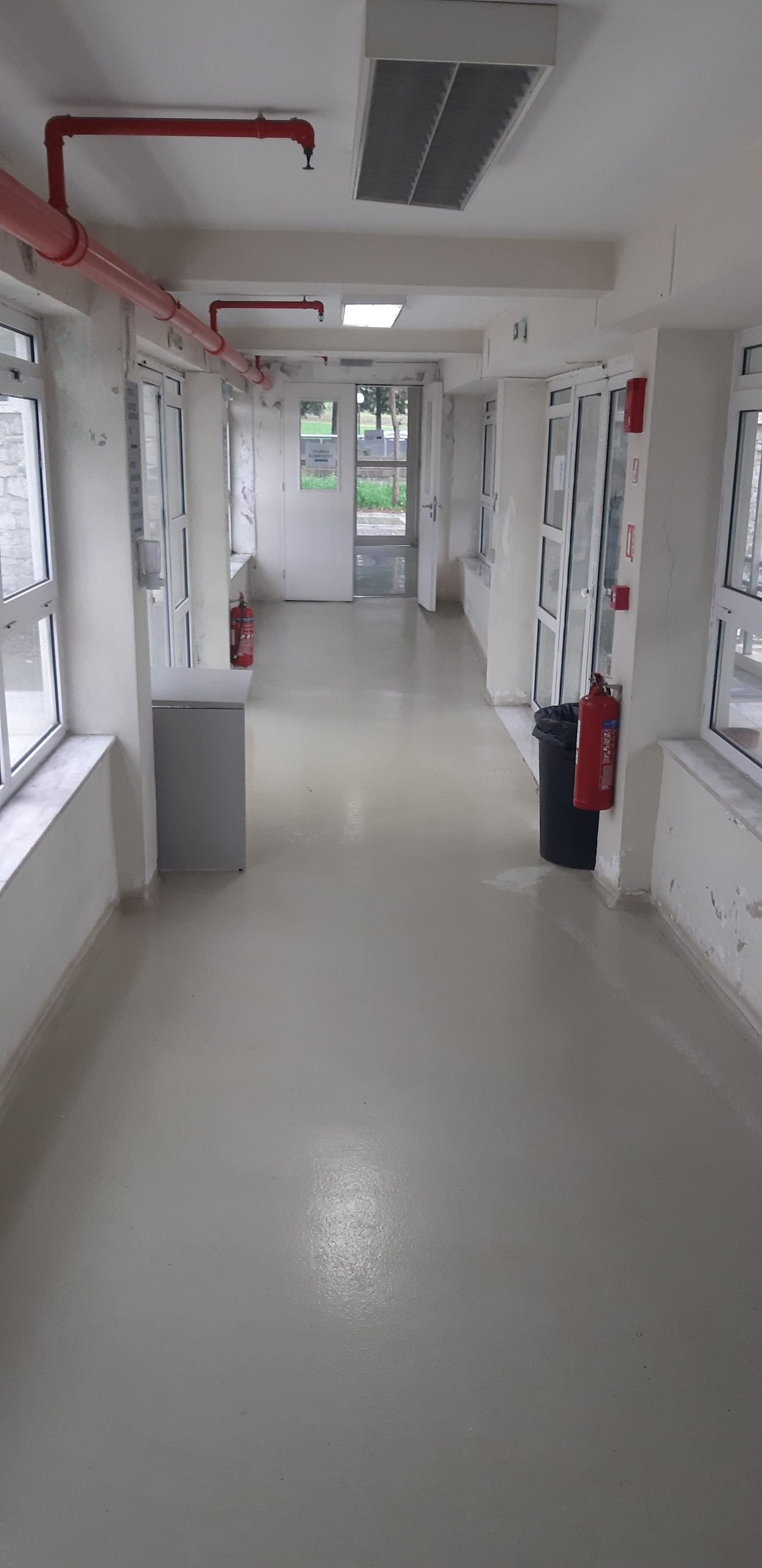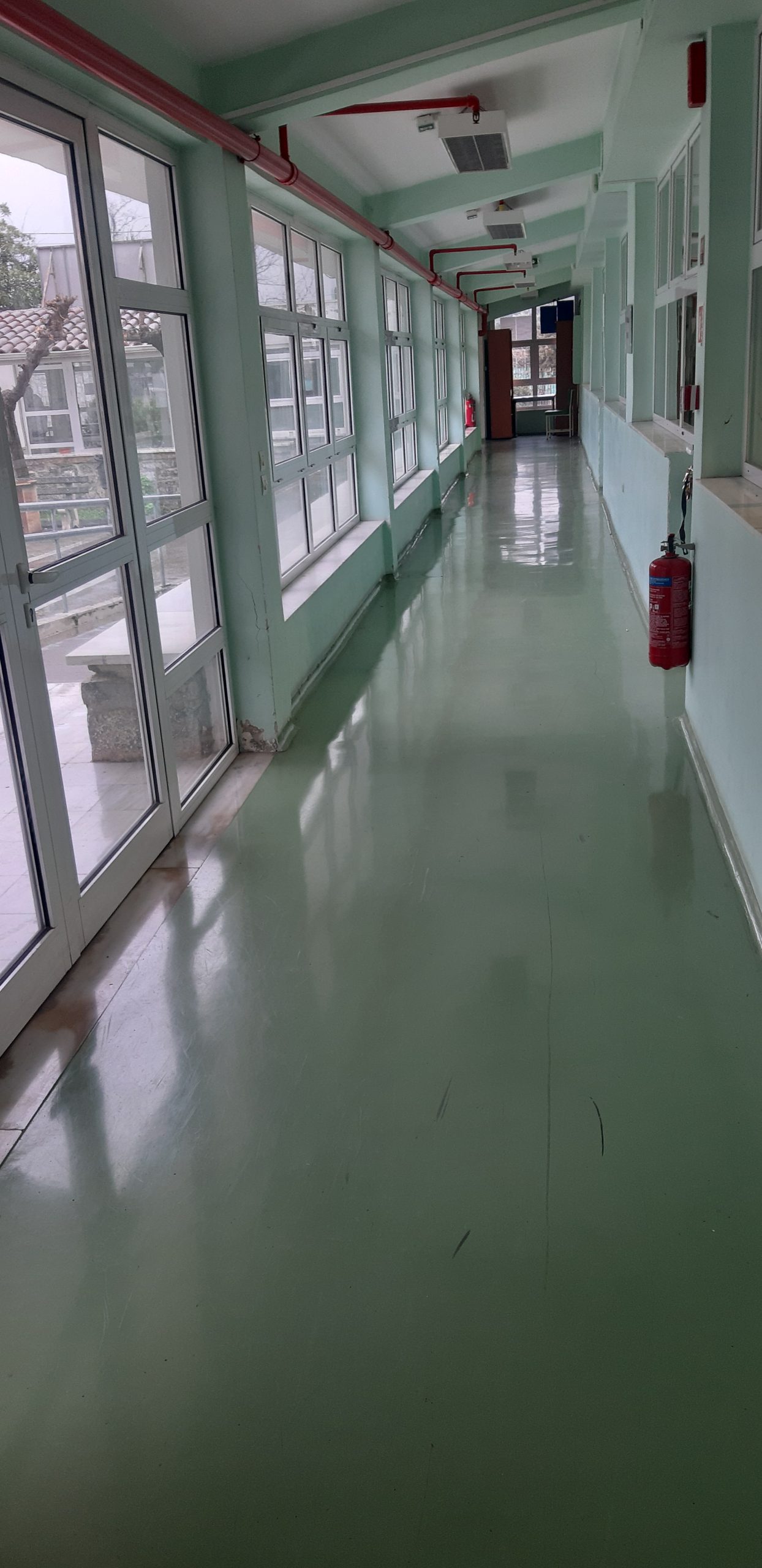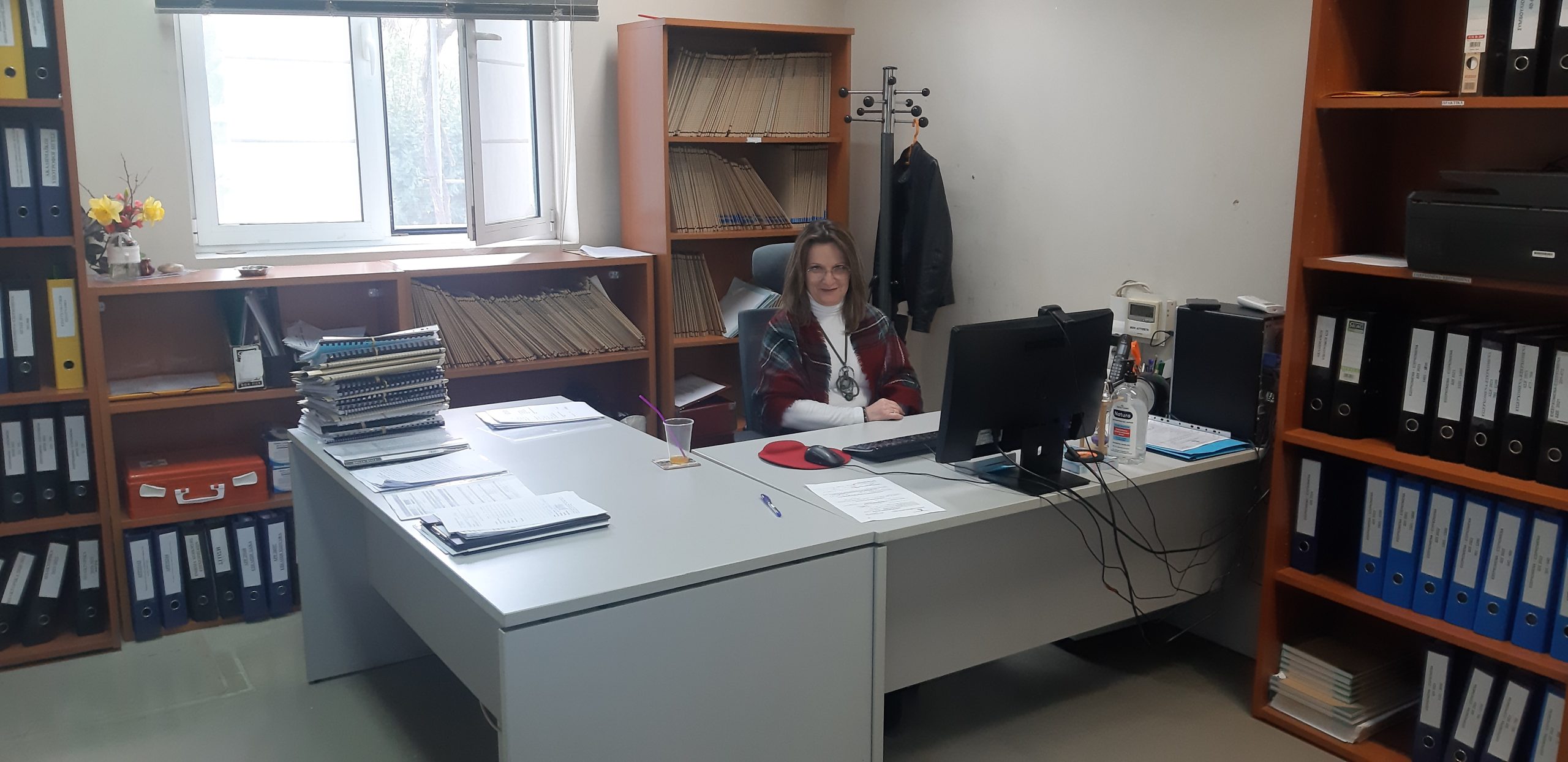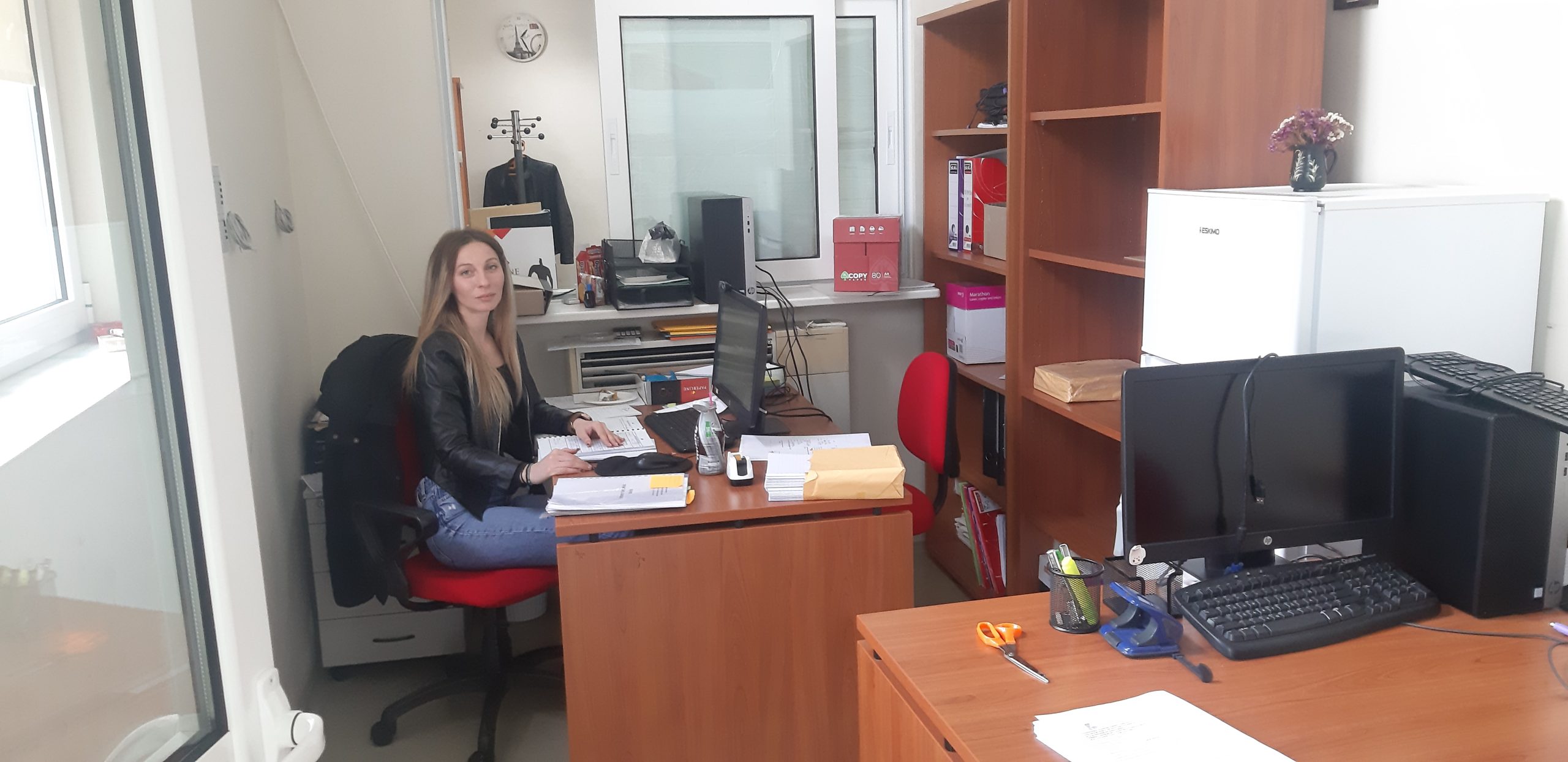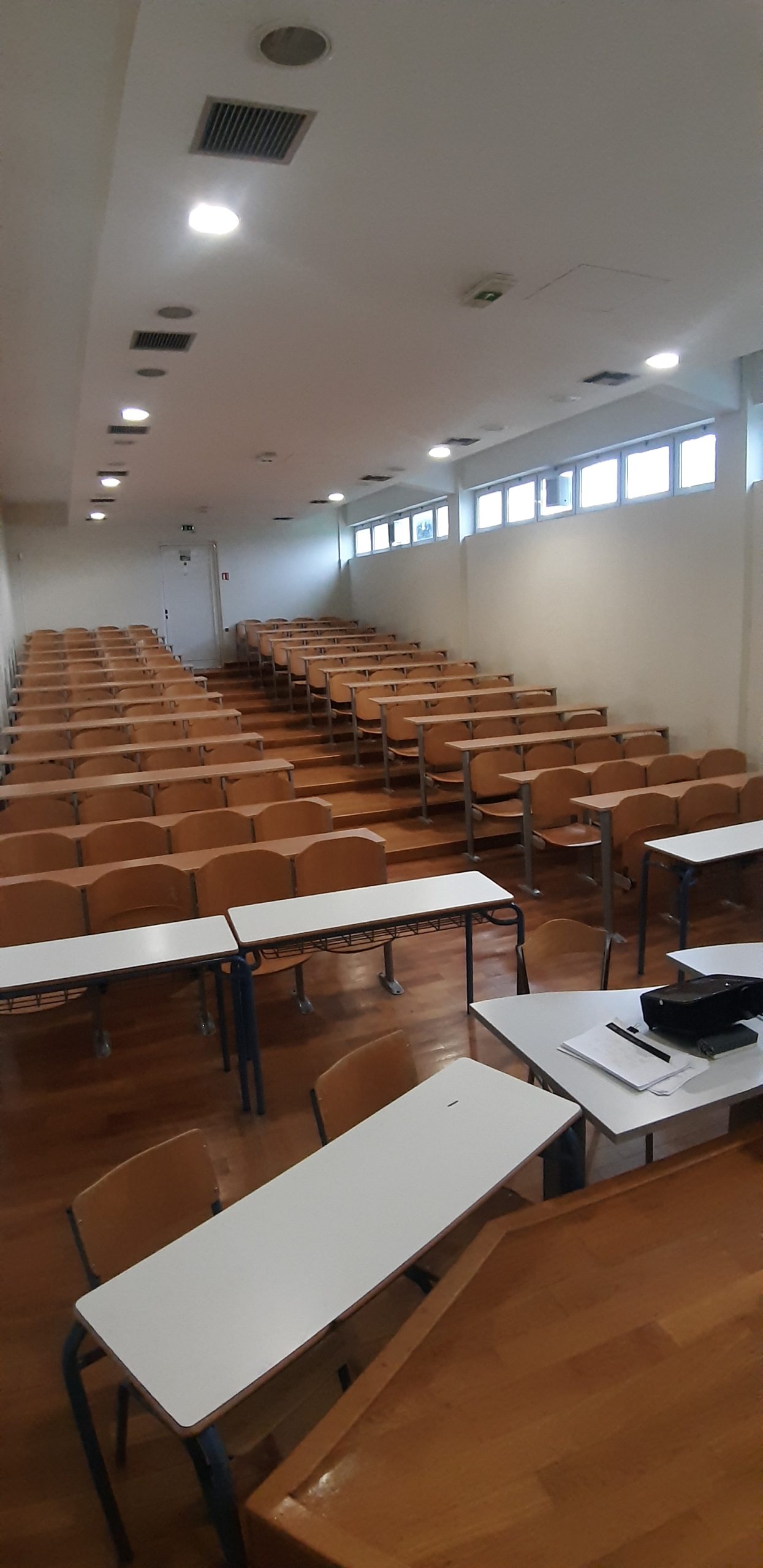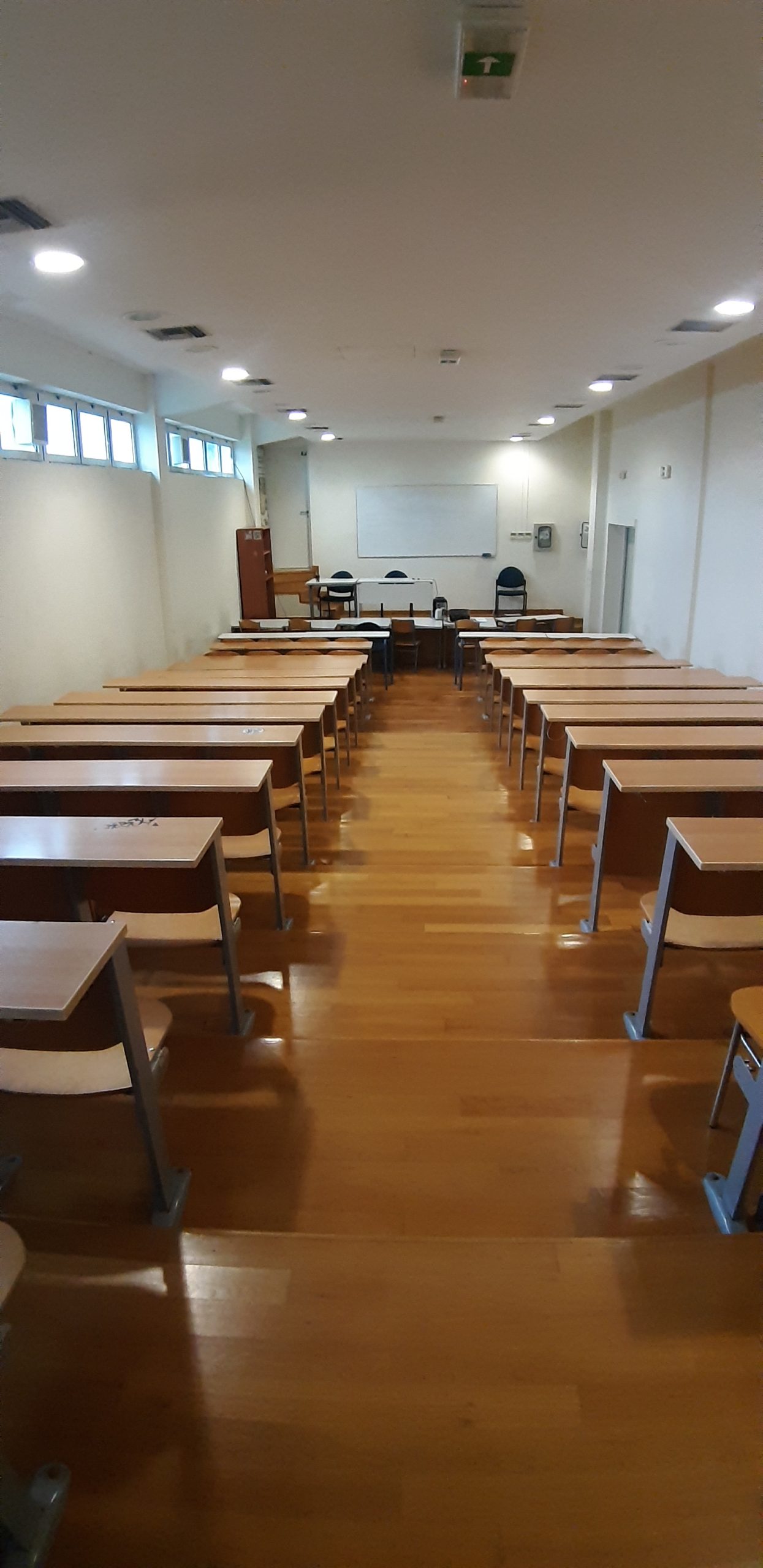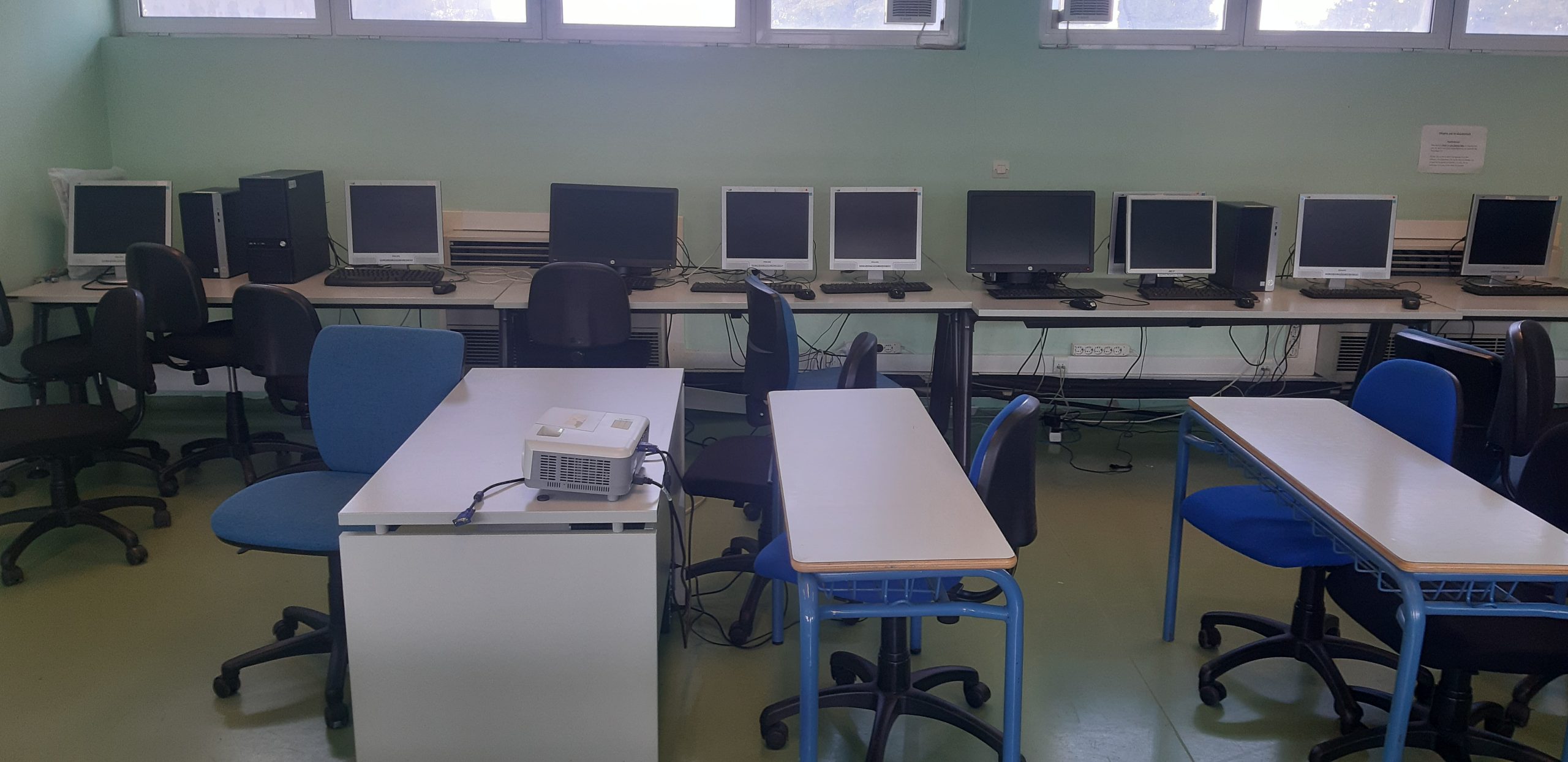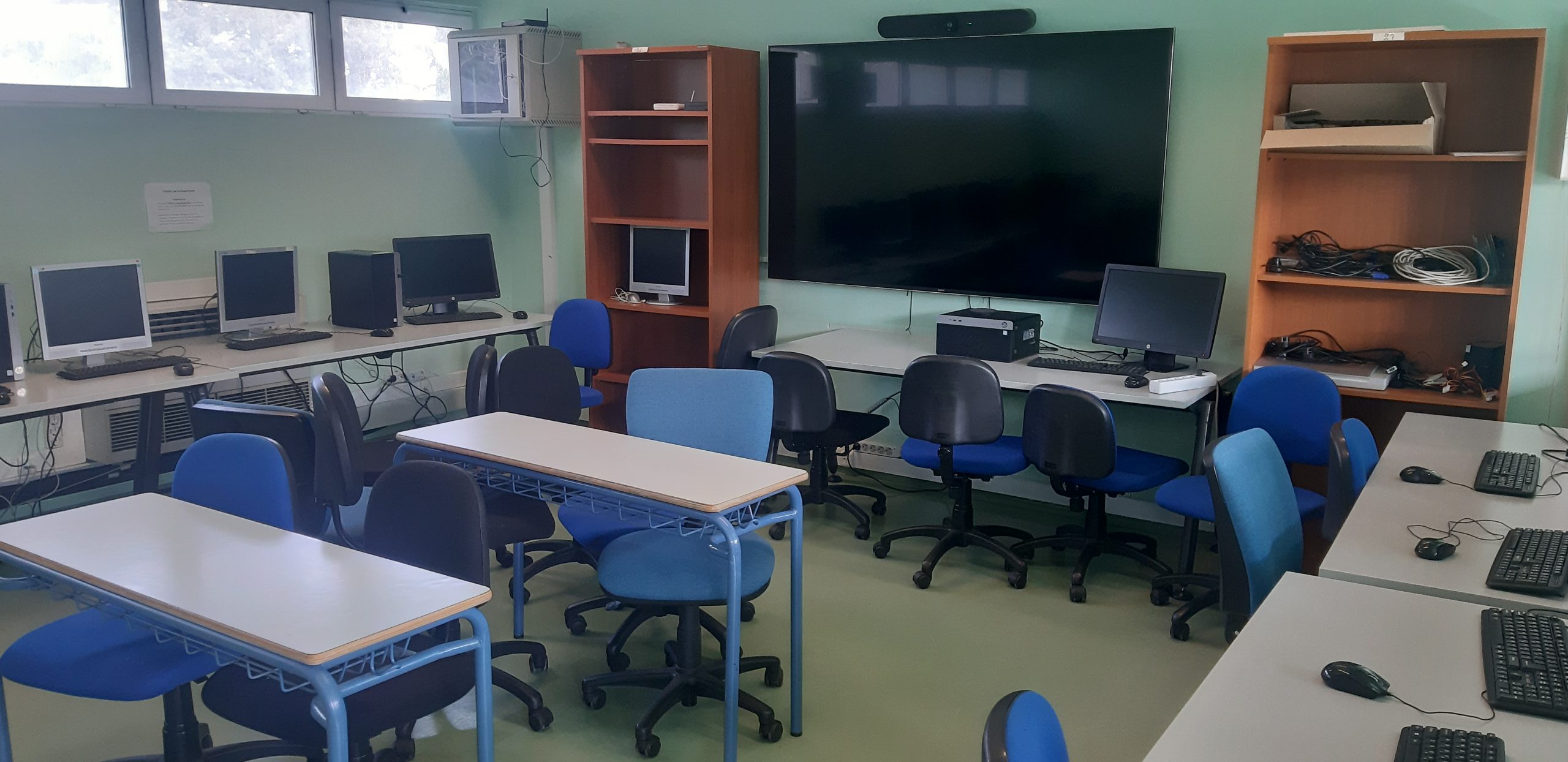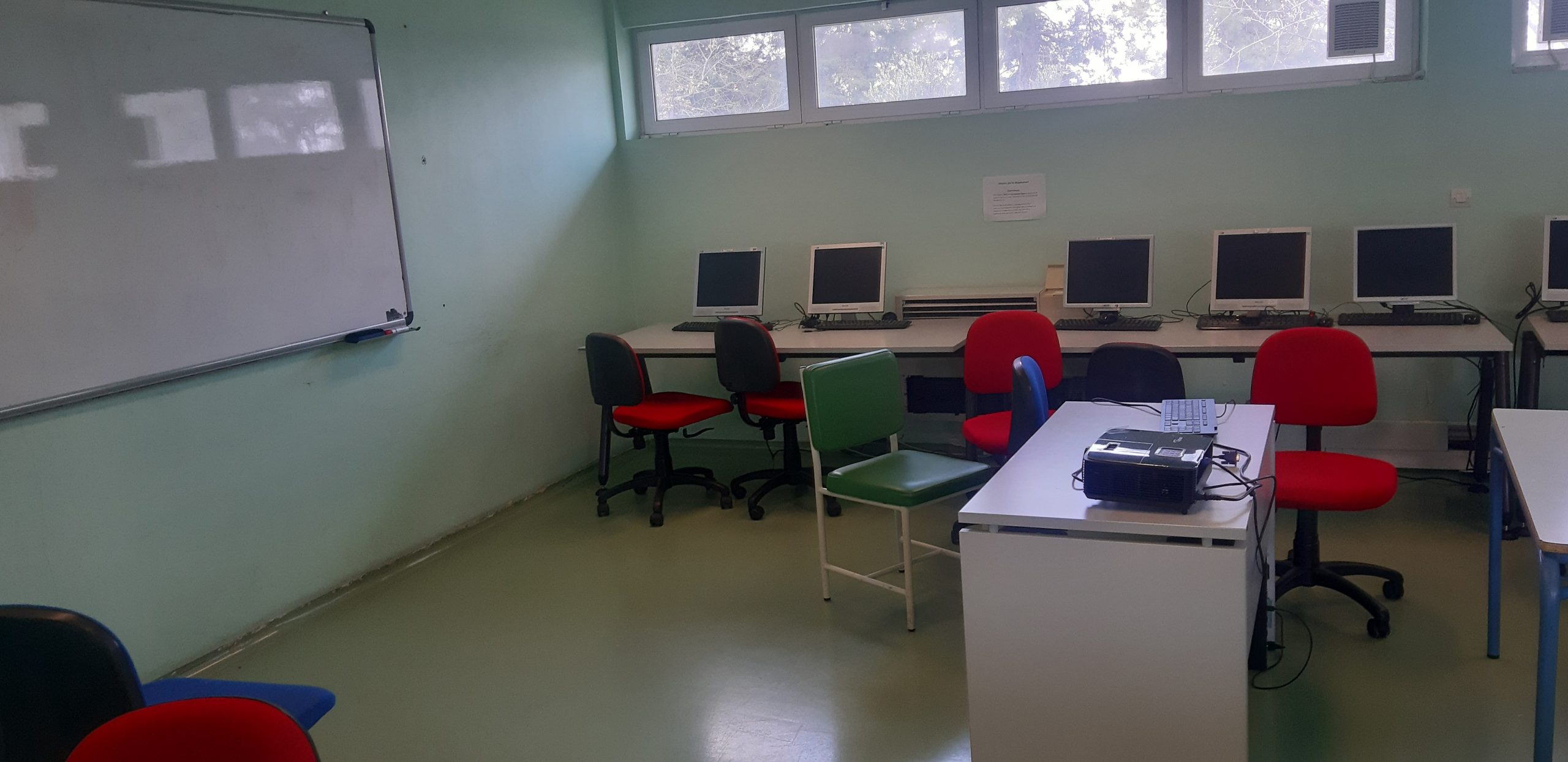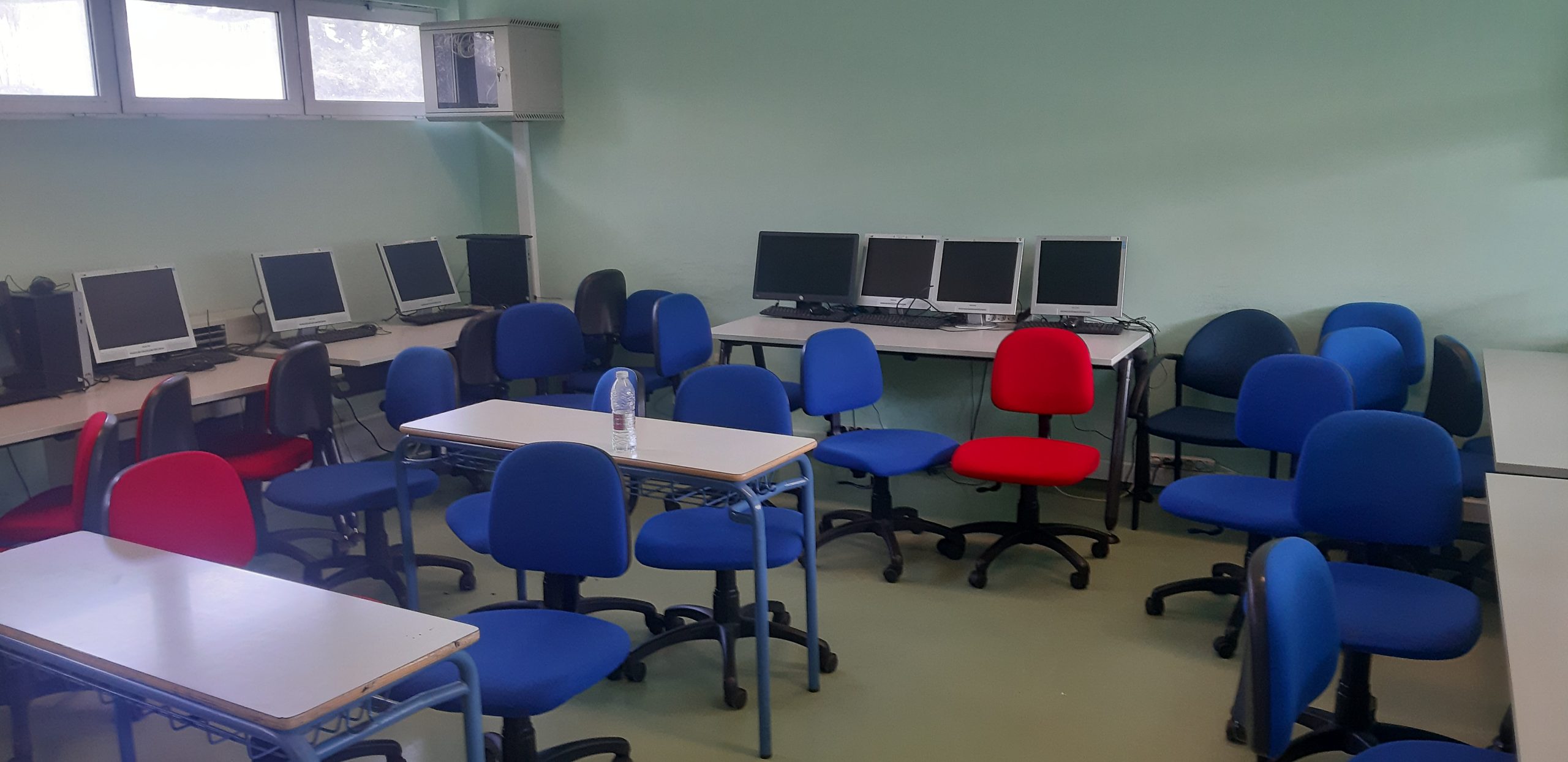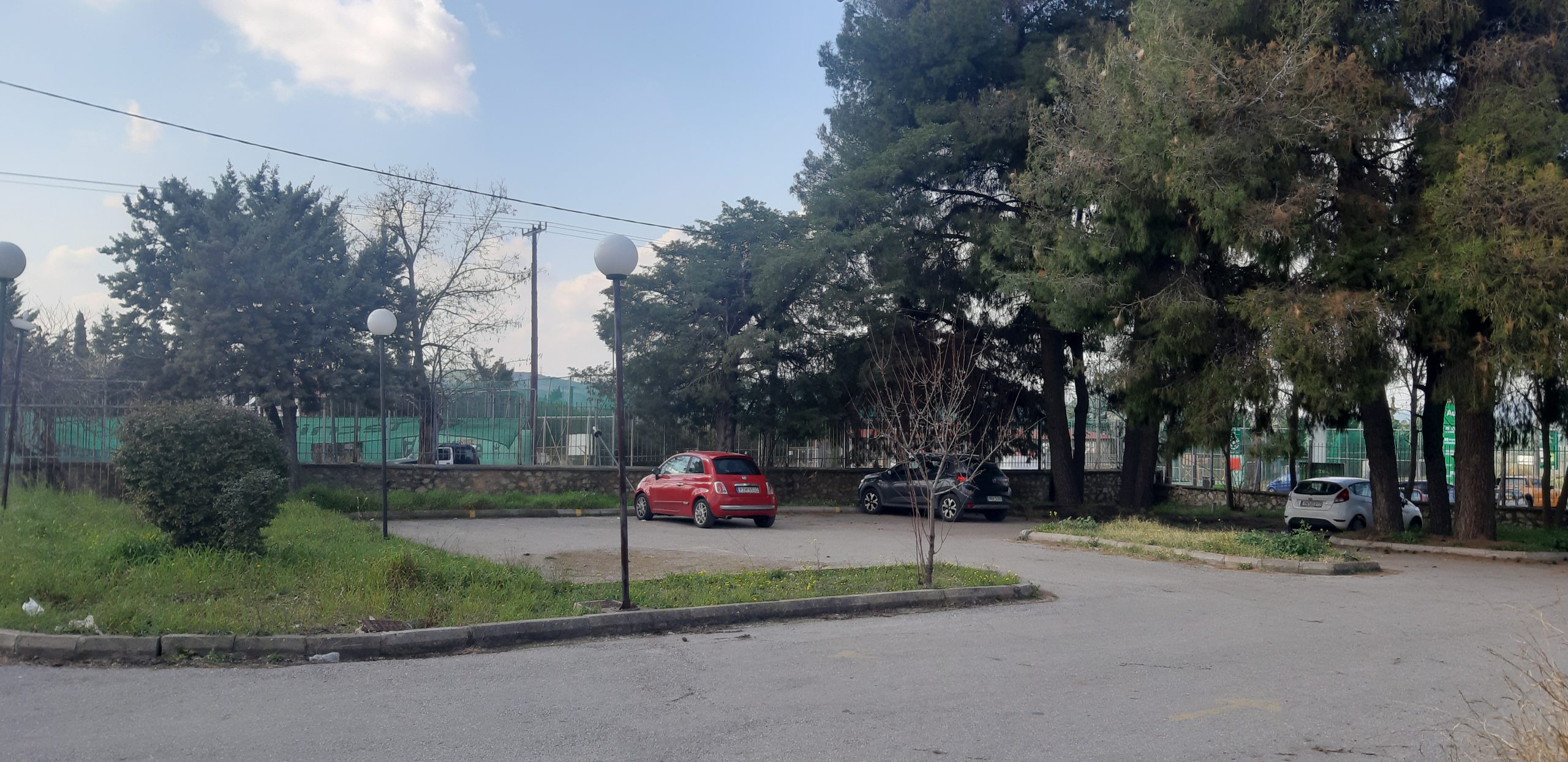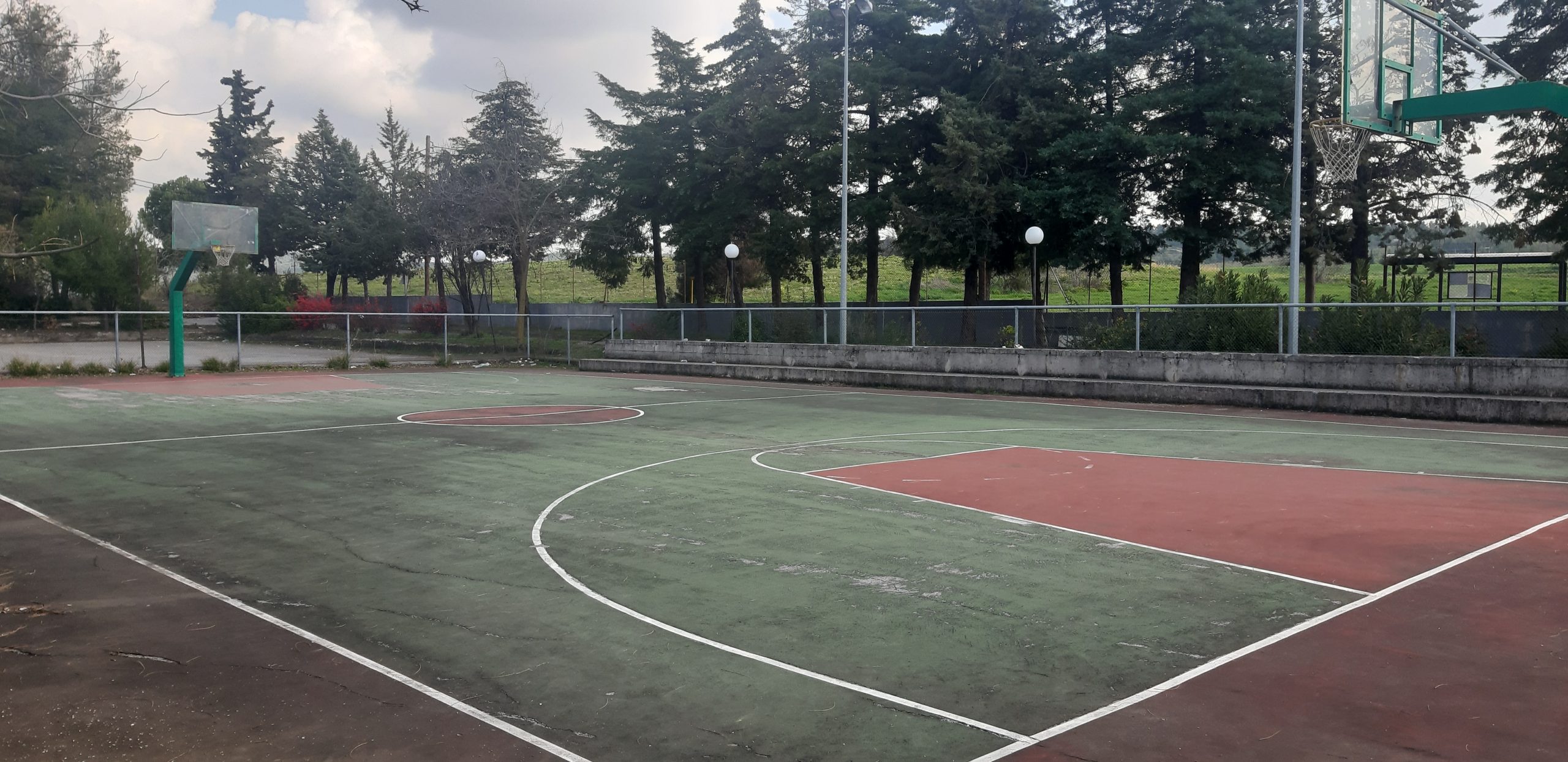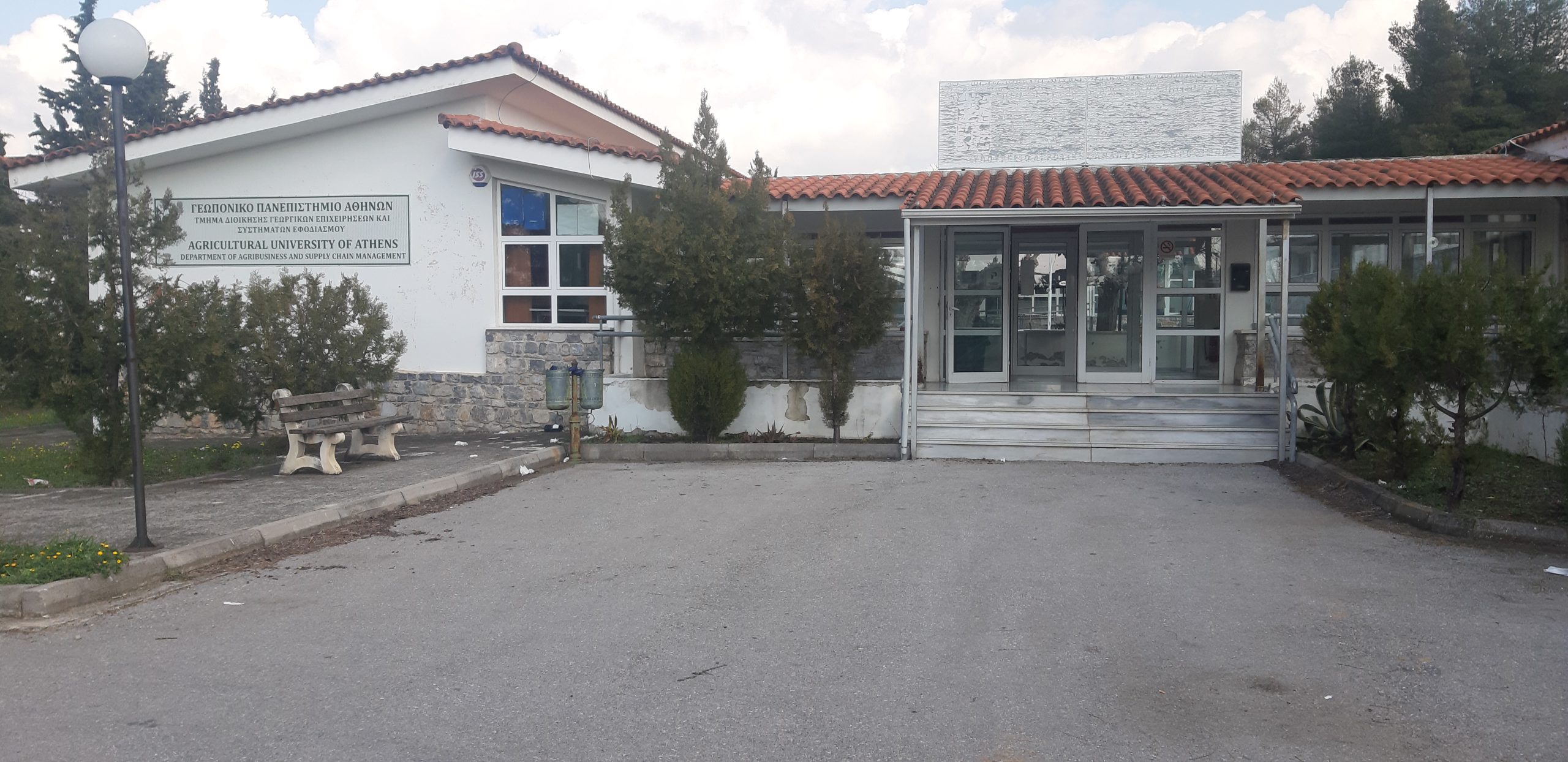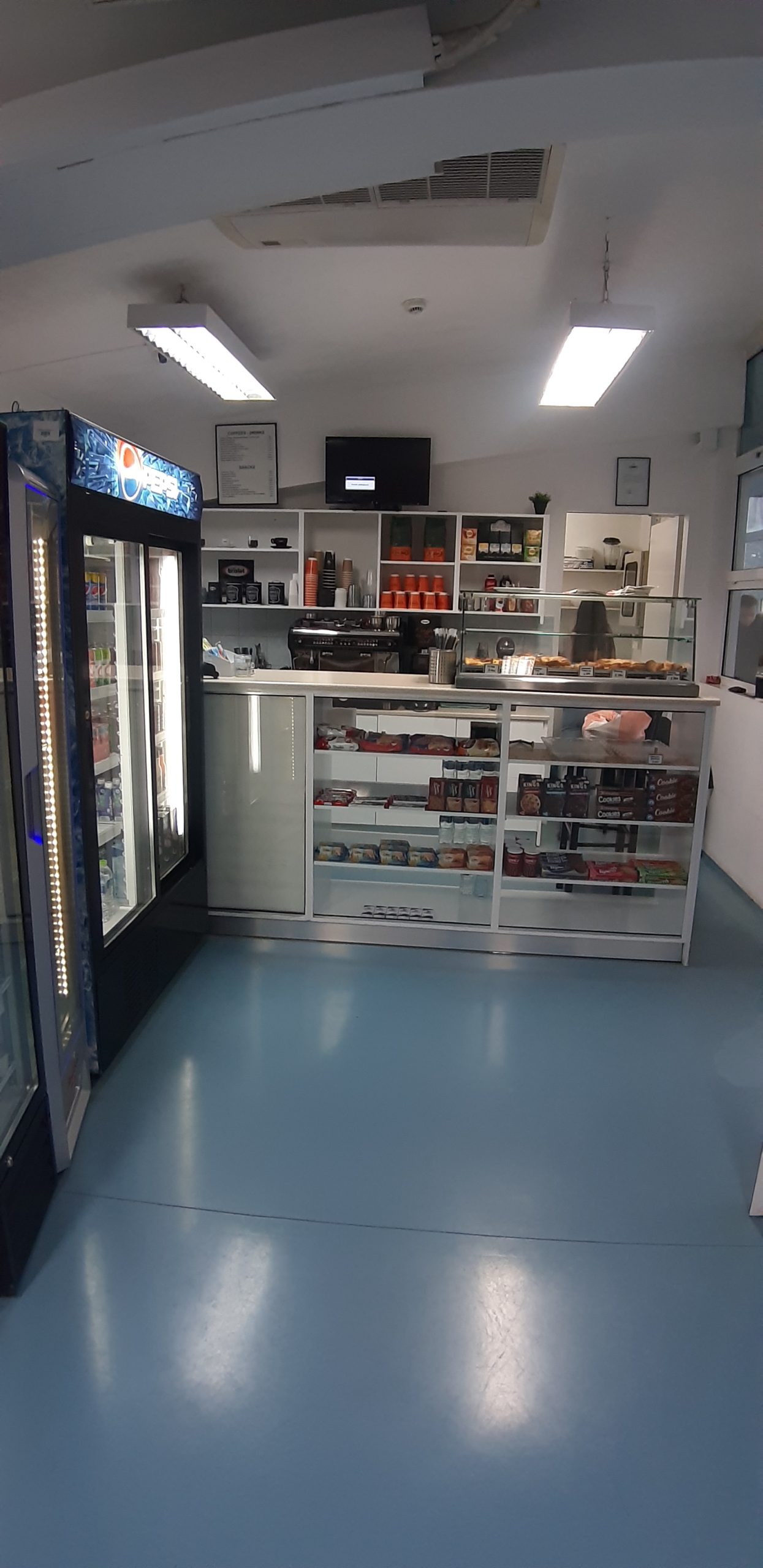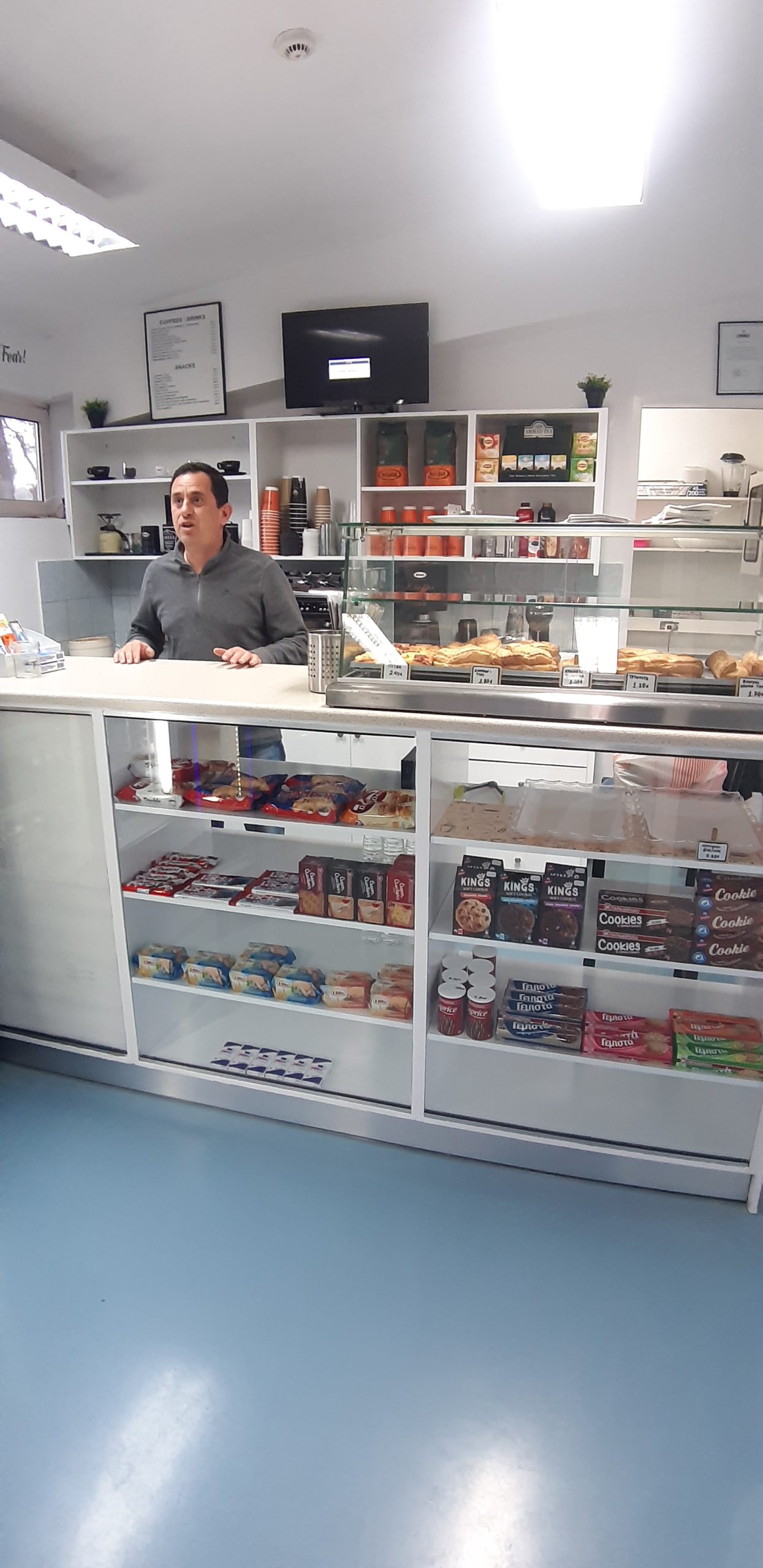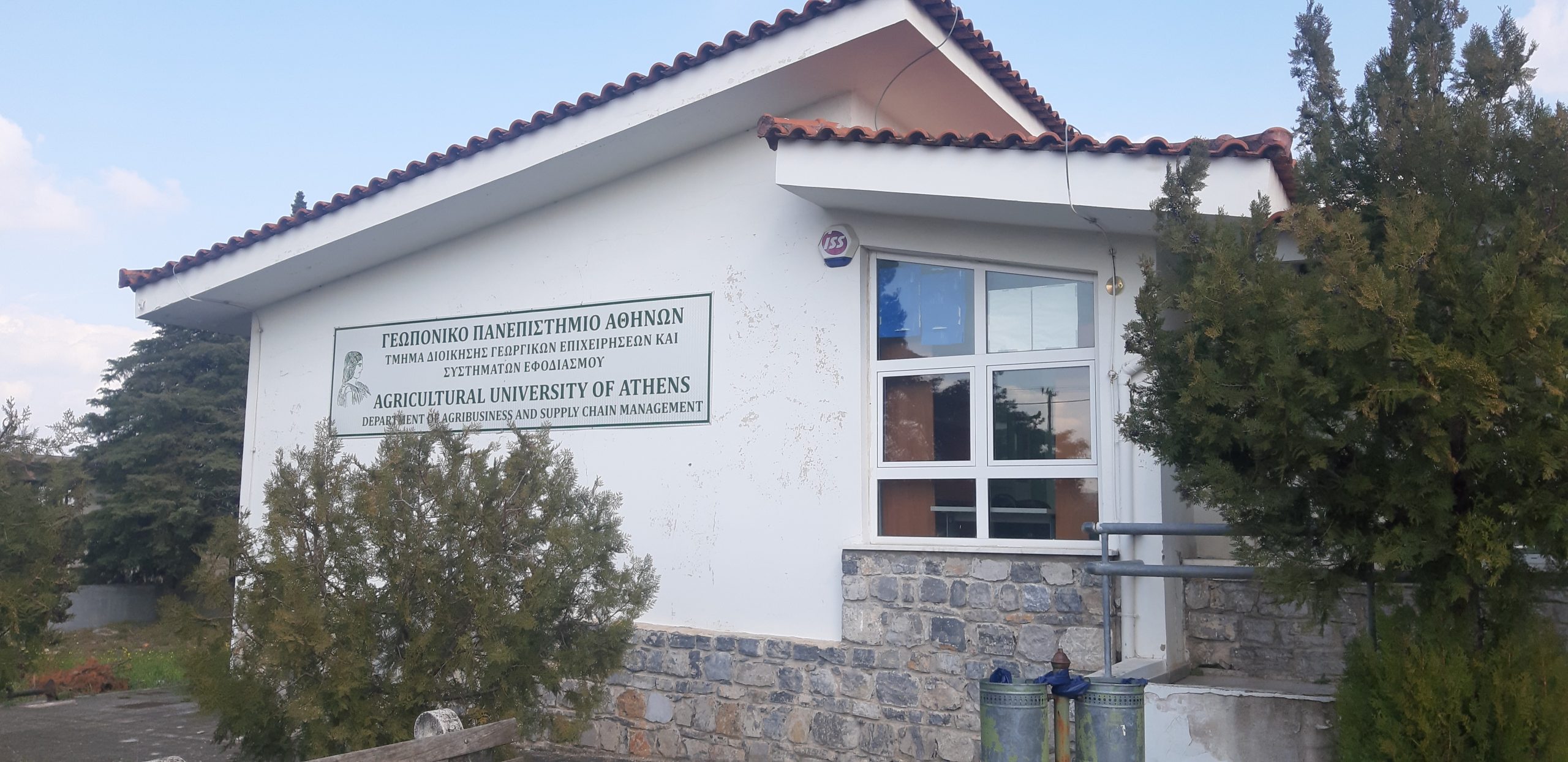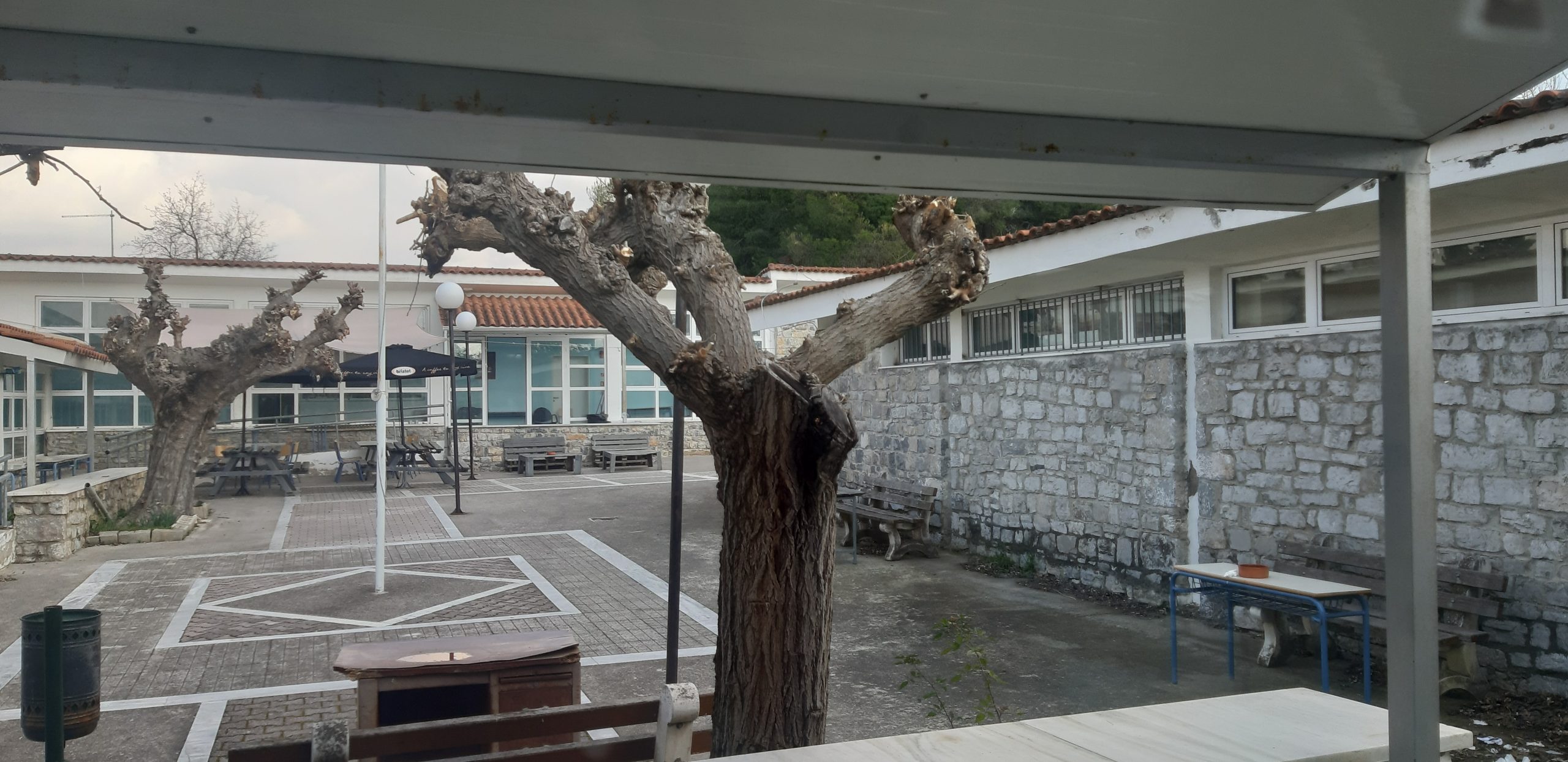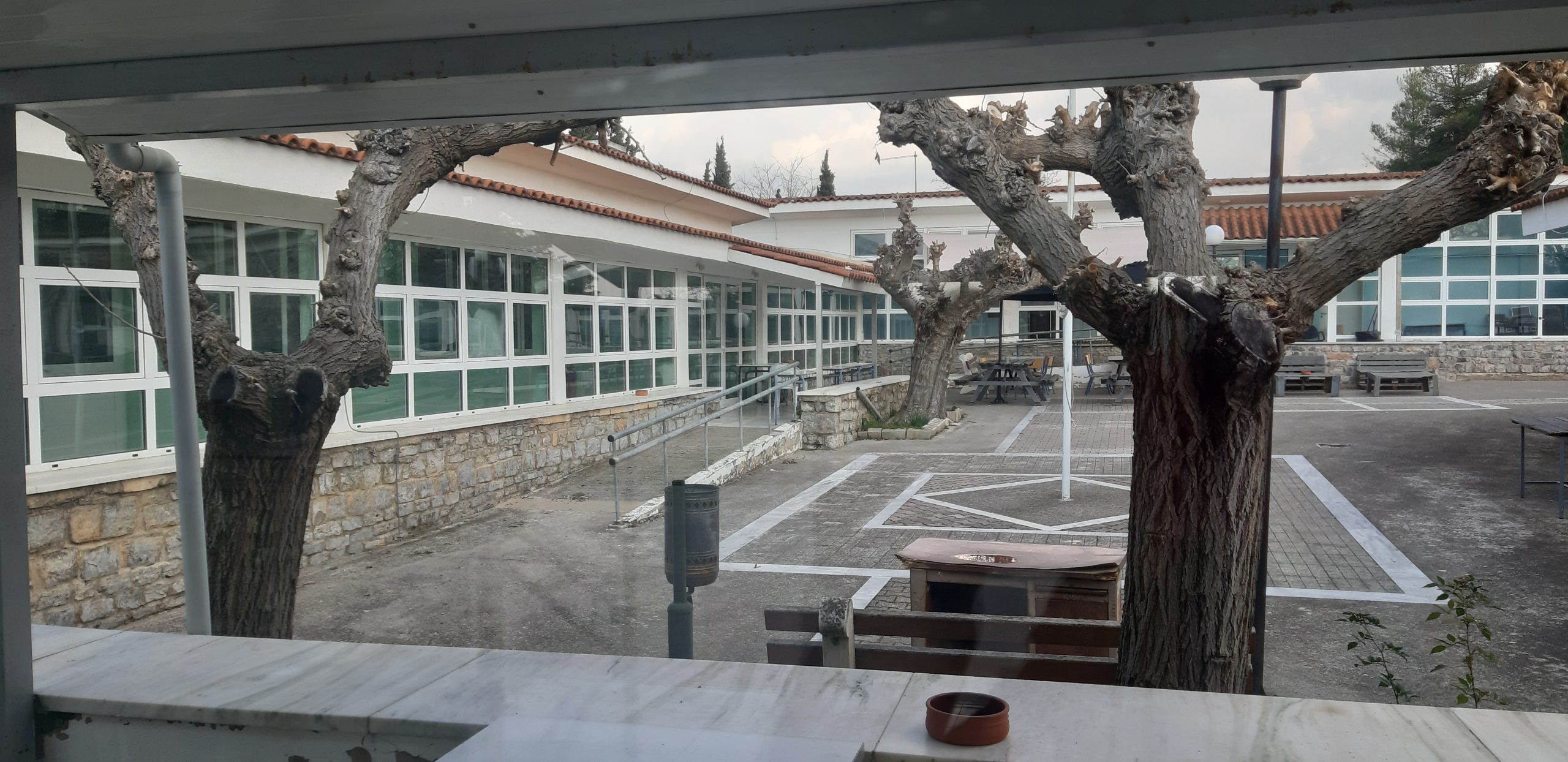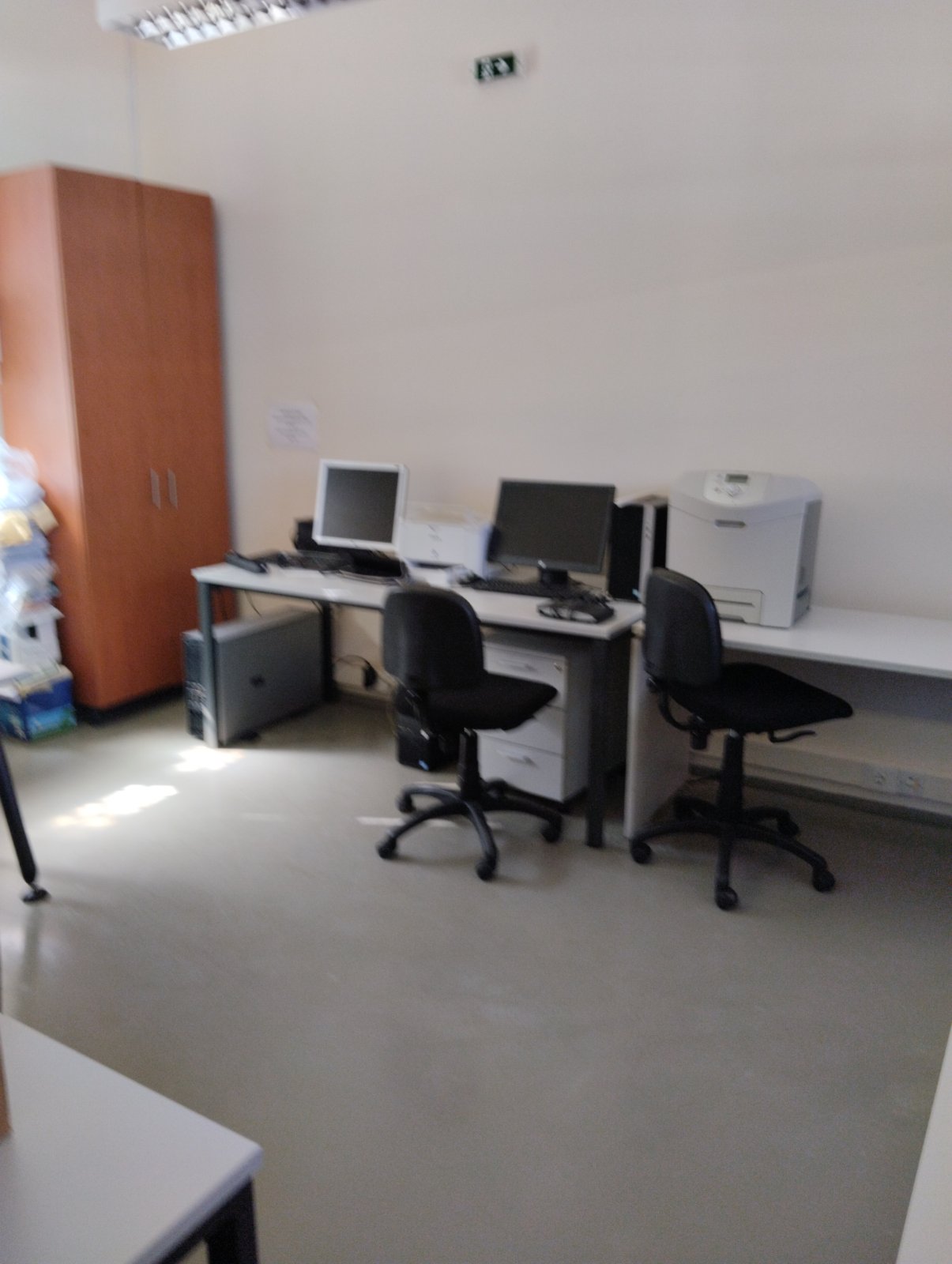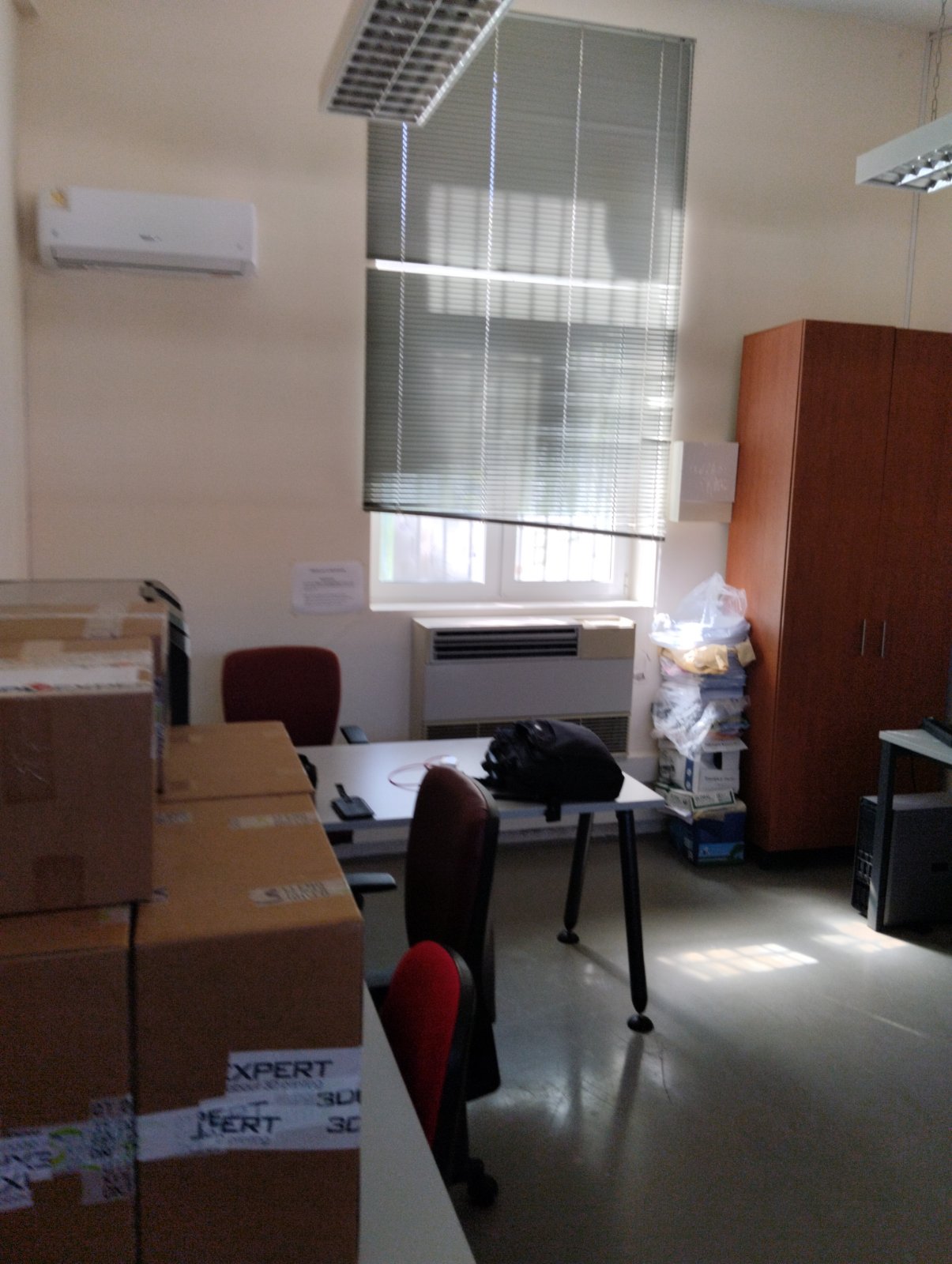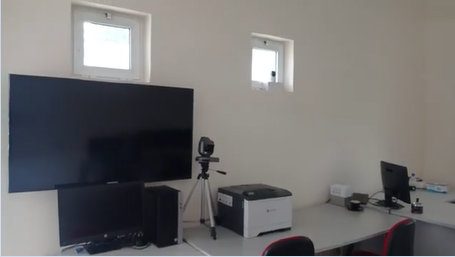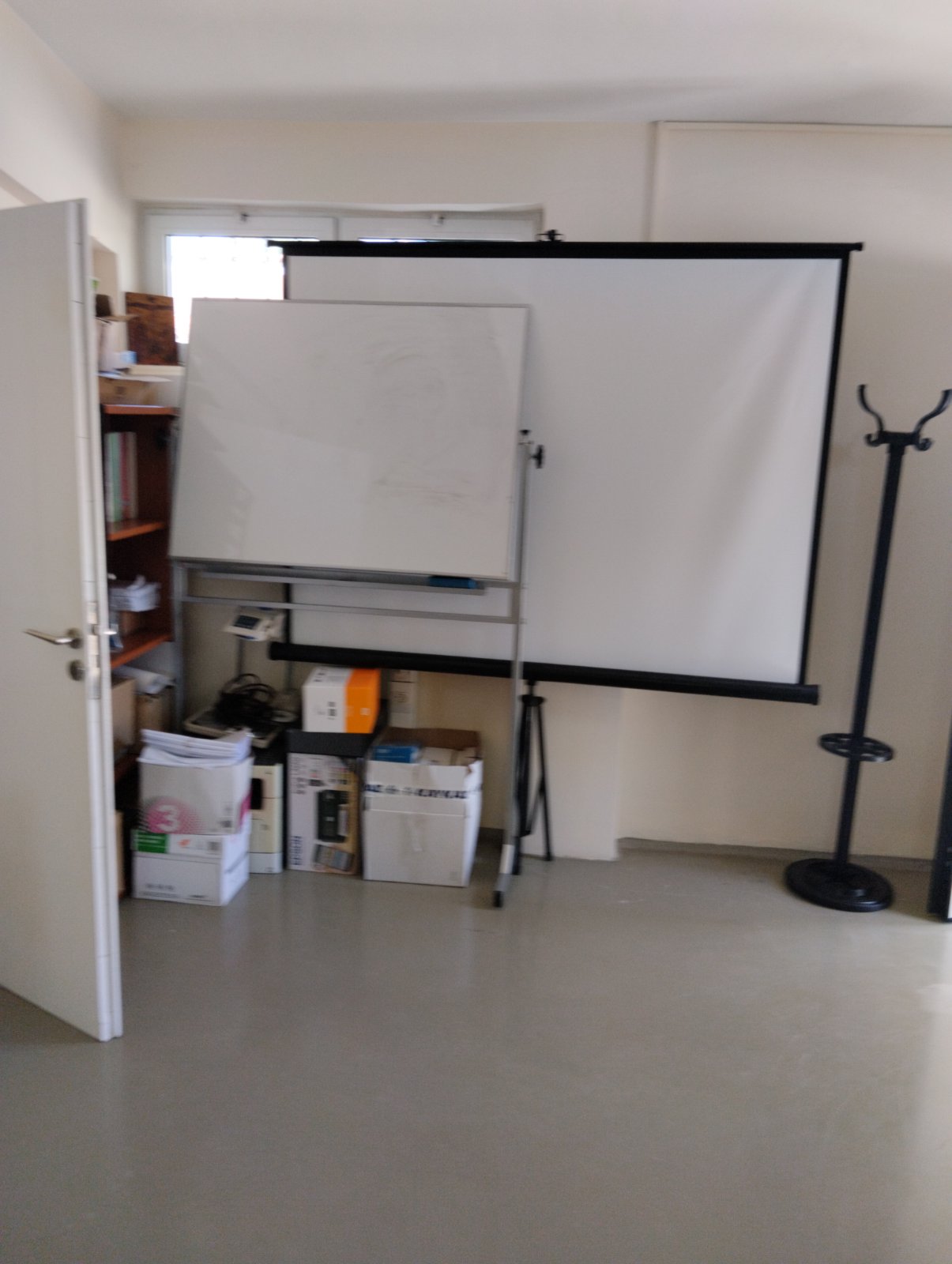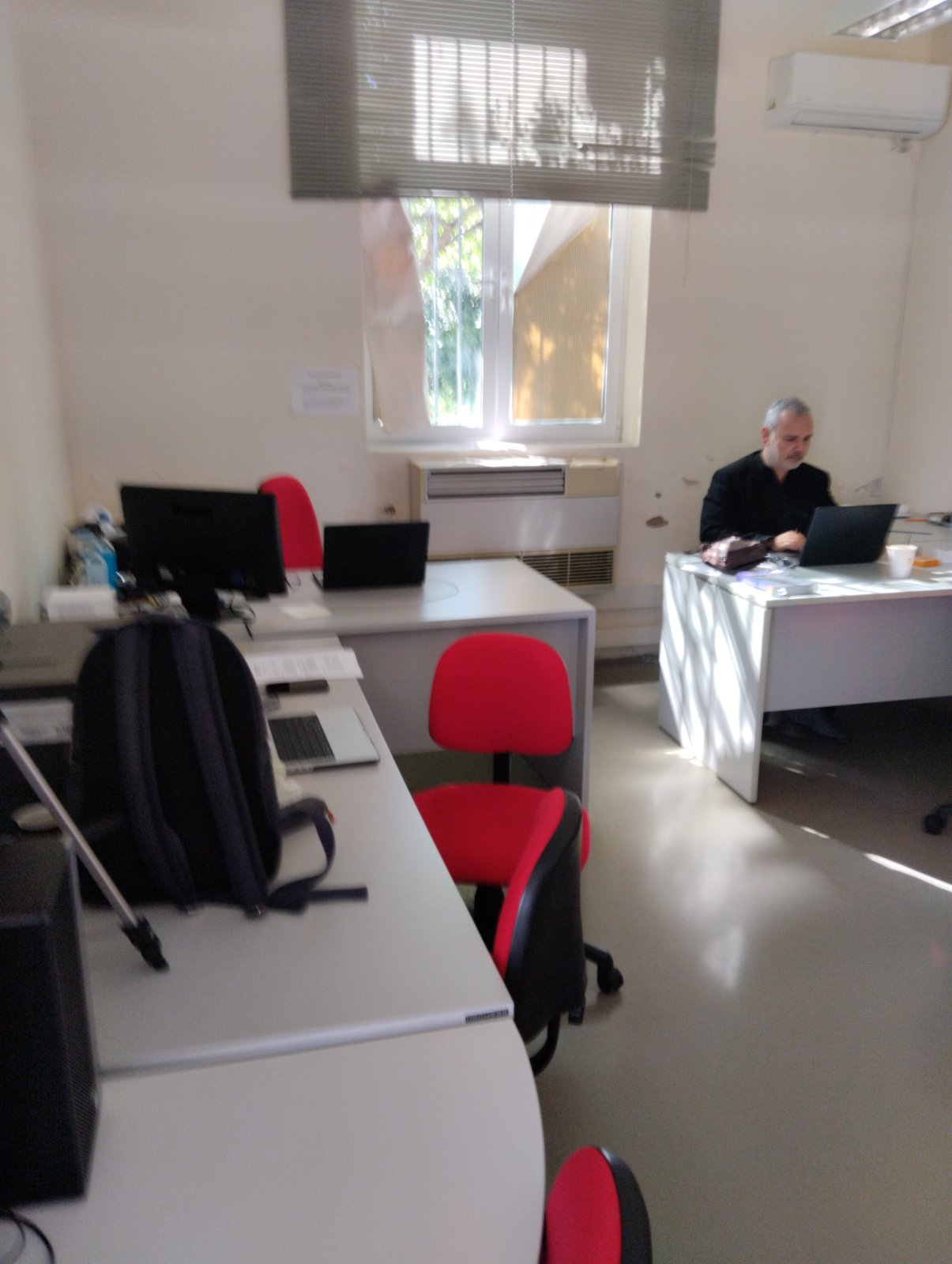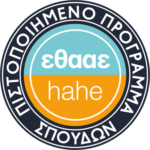Chair's Welcome
Welcome to the Department of Agribusiness and Supply Chain Management of the School of Applied Economics and Social Sciences of the Agricultural University of Athens, located in Thiva. The Department was established in 2019 (Law no. 4589/29-01-2019, Government Gazette 13 / 29.01.2019, vol. AD – Article 19), constituting the evolution of the Department of Logistics Management.
The Department has developed a modern five-year curriculum, which offers its students both theoretical and applied scientific knowledge. Graduates will be awarded an Integrated Master’s degree.
The Department offers an interinstitutional Master's Degree (M.Sc.) Programme in “Techno-economic Systems in Management” coordinated by the Department of Business Administration, National and Kapodistrian University of Athens. Our Department also supports PhD students and postdoctoral researchers.
The Department presents dynamic development prospects, which are supported through the enhancement of its research activity, as a coordinator or partner, within both National and European research programmes. The Department is connected with productive companies and organisations located in the nearby industrial areas of Schimatari and Oenophyta, as well as the wider Attica region (e.g., the Thriassian Plain and the port of Piraeus), creating a strong networking grid with professional and scientific bodies.
I wish all the best to the students of the Department expecting to enjoy their studies and graduate on time!
Giannis Tsoulfas, Associate Professor
Chair of the Department of Agribusiness and Supply Chain Management
Overview
The Department of Agribusiness and Supply Chain Management, located in Thebes, falls within the School of Economics and Social Sciences of the Agricultural University of Athens.
The Department was established by Law no. 4589/29-01-2019 (Government Gazette 13 / 29.01.2019, vol. AD – Article 19), and the educational operation of the Department commenced with the beginning of the 2019-2020 academic year. The Department’s study cycle involves a minimum attendance duration of ten academic semesters, the successful completion of which leads to the students’ obtaining a master’s degree – of a (postgraduate) level 7 on the Hellenic Qualifications Framework (EOPPEP).
The mission of the Department is the cultivation of the science of Business Administration, placing emphasis on Agribusiness and Supply Chain Management Systems. The Department is committed to offering a modern, high-level undergraduate program, in accordance with a policy of high-quality standards. The main goal of the Department is for its graduates to have received a high standard of scientific training, in order that they may possess – upon completion of their studies – an analytical and structured way of thinking and the ability to combine theory with practice so that they may be able to cope effectively with the tasks of managing (and meeting) the needs of the economy, research, industry, and education.
Committee of Experts
Menelaos Gardikiotis is President of the Geotechnical Chamber of Greece. He is an Agriculture Engineer, graduate of Agricultural University of Athens, Department of Agriculture Biotechnology.
He is working in the private sector and since 2011 he has been running his own business.
Today he participates in three business schemes regarding the concerned industry, providing services in the Agri-Food sector, and has established a network of associates of businesses from Evros to Crete, numbering over 15 business schemes.
He has been an advisor to the Minister of Rural Development and Food with responsibility the preparation of the 2014-2020 RDP, while he was also an associate of Deputy Direct of OGA. He was a member of the Board of Directors of the Environmental Organization of the Prefecture Piraeus. He has been Secretary General of GEOT.E.E. for two consecutive terms. He is married to Kyriaki Papadakis and has a daughter.
Nikolaos Gkionis is a Food Technologist with a postgraduate degree in Quality Management (MSc in Quality Management). Having worked for some years in the Food Industry since 2012, he works as an inspector of Food Safety Management Systems (ISO 22000, BRCGS, IFS, FSSC 22000). He is an approved trainer of the Hellenic Food Authority as well as an approved rapporteur of various standards (BRCGS, FSPCA) having taught in many educational seminars throughout Greece and abroad on food safety management issues. At the same time, he is a member of the board of directors of the Hellenic Association of Food Technologists.He is also a host at the Food Processors Podcast and at the academy Next Step Premium Food Workshops.
Stavros Daniel is a Mechanical Engineer from the University of Patras and obtained his PhD in Industrial Management and Technology from the University of Piraeus. He works as Group Chief Technology Officer (CTO) at Capital Group. He has worked for over 12 years at TUI where he rose to the position of Head of IT (Global) TUI Musement. He has extensive experience in implementing ERP/CRM applications with an emphasis on supply chain and operations management.
Elias Eliades is the Director of Investment Promotion / Industry, Logistics, Technology, Innovation at Enterprise Greece (the national investment and export promotion organisation of Greece and a member of the Economic Diplomacy mechanism of the Ministry of Foreign Affairs) with over twenty-five (25) years of experience in the formulation and implementation of strategies to attract foreign direct investment and in the development of policies to strengthen the country’s productive base. He holds a Master’s Degree in Political Science (MA) from the University of Warwick, United Kingdom, and has specialised in issues of industrial policy, investment strategy and supply chain management — a subject with which he systematically deals in the context of his professional responsibilities. His approach combines a theoretical understanding of economic development mechanisms with applied experience in the formulation of investment promotion policies and programs, especially in the sectors of industrial production, logistics and infrastructure. It has contributed decisively to the design and implementation of national and international initiatives and actions that strengthen Greece's interconnection with international value chains, promoting innovation, sustainable industrial development and the extroversion of the national economy.
Georgia Kalemidou is a Director at KPMG in Greece, in the Human Resources Consulting department. Throughout her years of consulting experience, she focuses on supporting companies in developing their human resources strategy, improving the performance of their employees, achieving their goals and aligning them with the company's strategy. She specialises in human resources strategy development projects, workforce planning, transformation & AI adoption, shaping a corporate culture that reflects the values and modern challenges of the business environment, as well as in change management and supporting transformation projects. She is responsible for enhancing the "employee experience" through the development of modern performance management and employee rewards systems, as well as through the formation of an integrated, modern human resources management framework (Powered Enterprise HR) supported by digital solutions (Digital HR Solutions).
Georgia holds a Master of Business Administration (MBA) from Strathclyde Business School - distinction (UK), a Master of Economics (MSc) from the University of Reading (UK) and a degree in Agricultural Economics from the Agricultural University of Athens. She is a certified Change Management Practitioner (PROSCI).
Panagiotis Kalfountzos is a graduate of the School of Agriculture of the Aristotle University of Thessaloniki and President of the Farmers' Cooperative of Thessaly (THESGI) since 2013. Mr. Kalfountzos has a significant footprint in the agri-food sector and a deep understanding of issues related to the organisation of production, supply chain management and the integration of innovative technologies in agricultural activities. He has many years of experience in the management of a cooperative scheme that operates on the basis of contract farming, implements Agro 2.1-2.2 quality systems, utilises precision agriculture technologies and develops logistics infrastructures with a modern business approach. At the same time, he actively participates in conferences and public debates concerning the interconnection of research, agricultural production and technology, as well as the need for collaborations and cooperative schemes, thus offering a comprehensive understanding of the challenges and opportunities of the agri-food sector.
Eleni Bitsiou is a Mining and Metallurgical Engineer from the National Technical University of Athens with a Master's degree in Economics from Birkbeck University of London. After 6 years of previous service as an Engineer at Dionysos Marbles and FULGOR Cable Industry SA, her career evolved in the field of logistics. She has been working for over 20 years at SYNERGY SA (Third Party Logistics - 3PL), where she is responsible for the SnOP Division (Sales & Operations Planning Division, i.e. over 200 employees) in her role as Chief Commercial Officer, while she also holds the position of Vice President of the Board of Directors. At the same time, she holds the position of Chief Sustainability Officer, having the responsibility of implementing the Company's Sustainable Development Strategy. She has been a member of the Hellenic Logistics Association (EEL) since 2013 and participated in the Board of Directors of EEL since 2019, initially as a Member, and then on the Board of Directors of EEL in the position of Vice President of Administration for the period 2020-2024.
Kostas Papadimitriou is an Economist and Statistician, holding dual undergraduate degrees in Economics and in Statistics and Insurance Science from the University of Piraeus. He has also completed postgraduate studies in European and International Relations.
Since 2017, he has served as Secretary General of the Central Administration of the Economic Chamber of Greece (ECG).
He is Secretary General of the Development Institute of the Economic Chamber of Greece and has been a member of the Assembly of Representatives of the Economic Chamber of Greece since 2004.
His professional background includes experience in the banking sector, and he currently holds an executive position at the Region of Attica.
Kostas Papadopoulos, a graduate agronomist and founder of BioAgros, is one of the leading figures in the agrifood sector, with a particular specialization in organic products. He possesses extensive experience in the organization and management of agrifood enterprises, in the administration of food supply chains, and in modern logistics, both within the Greek market and internationally. Under his strategic leadership, BioAgros manages thousands of products, conducts distributions throughout Greece, coordinates imports and exports, and collaborates with specialized logistics companies that enhance the efficiency and sustainability of its supply chain. His expertise and long-standing experience cover every link of the agrifood chain, ensuring high quality, consistent availability, and uninterrupted access to products for consumers. He is widely recognized as a leading authority in the field of organic foods, playing a decisive role in the development and advancement of the sector in Greece.
Ioannis Chatzitheodosiou was born at Babalio Valtos of Aitoloakarnania (1963). He is of Greek Pontic origin.
He studied Economics at the Higher Industrial School of Piraeus (University of Piraeus) and participated at the Board of Student Association.
He started his professional career as Insurance Consultant at Nationale Nederlanden. He founded his own Agency "Insurances Chatzitheodosiou" (1990), transformed later as “MEGA Insurance Ltd”, (1998), and finally as MEGA BROKERS SA (2006). MEGA BROKERS SA is the largest Insurance brokerage company in Greece during the last 13 years. He is the President and the CEO till today. He has been elected as a Member of the Board of Directors of the Association of Insurance Mediators of Greece (EADE).
He was elected as Municipal Councilor and President of the Municipal Council of Agia Varvara in 1990, re-elected in 1994, while from 1993 to 1996 he was appointed as President of the Prefectural Hospital of West Attica (formerly Hospital for Infectious Diseases).
He was elected as Vice-President at the Union of Hellenic Chambers of Commerce in 2018, while from August 2021 till February 2022 he held the position of the President.
He was elected as a Member of the Board of Directors at the Athens Chamber of Tradesmen in 2001, Secretary General from 2012 to 2014 and President from 2014 till today. He also served as General Secretary and President of the non Profit Company created by the Athens Chamber of Tradesmen named “Hermes”.
He was appointed as Vice-President of the Organization for the Promotion of Alternative Dispute Resolution Methods (OPEMED), by Mr. P. Pikramenos, Vice-President of the Greek Government.
He is married with Mrs Chrysanthi Tsichli and has two children, Tasos and Ioanna.
Christos Christopoulos is currently working in Swissport International AG, as “Senior Manager Global Operations Performance and Excellence”. In the current position, he has the responsibility to oversee the performance of Swissport stations across the network and their compliance with company’s service delivery standards, for the provision of ground handling and fueling services.
he has extensive experience and expertise in managing contracts and agreements for the Supply of Services and Logistics in the aviation industry, being involved with company’s strategy for new joint ventures, acquisitions, tenders, partnerships, alliances, global deals, and framework agreements, in the previous role in Corporate Business Development (Zurich, 2004-2008).
He has profound knowledge of hands-on management of Freight Forwarding and Air Cargo Warehouse, gained from the previous roles of director of Swissport GAP (Cyprus, 2009-2021) and cargo service manager of Delta Airlines (Athens, 1997-2001).
He has substantial capacity in collaborating with the stakeholders and the providers of the supply chain in the aviation market – especially for B2B services, through the previous position as Swissport station manager (Cyprus, 2009-2021) and the role of secretary of the Airline Operators Committee (AOC) during the transfer to the new airport (Athens, 2000-2001).
He holds a Master’s degree (MSc) in Business Marketing (University of Essex). He has conducted research and has contributed research papers and publications in journals of recognized prestige. The publications refer to the topics of supply chain and logistics, and they are related to provider selection, to shipping, to transportation and air-transportation.
Department Evaluation
The Evaluation and Certification Council of the National Authority of Higher Education (ETHAAE), during the Meeting 41/24-07-2024, decided to grant certification to the Agricultural Business and Supply Systems Management Undergraduate Program of the Agricultural University of Athens with a duration valid for five years, from 24-07-2024 to 23-07-2029.
The Council accepted the Report of the External Evaluation & Certification Committee, according to which the Undergraduate Program of Agricultural Business Management and Supply Systems of your institution complies satisfactorily with the principles of the Quality Standard for the Certification of New Undergraduate Programs in the operation of ETHAAE and the Principles and Guidelines for Quality Assurance in the European Higher Education Area (E50).
Department Evaluation
General
The concept of Evaluation in higher education was introduced by Law 3374/2005, according to which, "evaluation consists in the systematic, documented and detailed assessment, highlighting and recording of the work of Higher Education Institutions, using objective criteria and in critical analysis and identification of any existing weaknesses and deviations in relation to the academic profile, their goals and mission, …”
The Agricultural University of Athens, sharing the need for a systematic collection and recording of objective indicators - qualitative and quantitative - has implemented an evaluation system, in accordance with the institutional framework in force in our country (law 3374/2005), for the first time in 2008, for the academic year 2007-2008 and continues uninterrupted each academic year.
The evaluation criteria and indicators revolve around the following axes:
- The quality of study programs
- The quality of the teaching work
- The quality of the research project
- The quality of other services
Purpose of the Evaluation
The purpose of the Evaluation is for the Departments and the University to form and formulate a critical opinion on the quality of its work based on objective criteria and indicators of common consensus and general acceptance, and with the following objectives:
- The documented highlighting of the Department's achievements
- Highlighting points that need improvement
- The identification of improvement actions
- Taking initiatives for independent action within the Department, wherever and whenever possible
- Making decisions for independent actions within the Foundation, wherever and whenever possible
Evaluation Process
Responsible for monitoring the course of the Evaluation as well as for supporting the quality assurance procedures are:
- The National Authority of Higher Education (ETH.A.A.E.) at national level
- The Quality Assurance Unit (QAU) at Institution level
- The Internal Assessment Group (IAG) at Department level
Evaluation is a periodic process, which includes:
- The submission of the Department's Annual Internal Report to MO.DI.P., on an annual basis
- The submission of the Department's Internal Evaluation Report to MO.DIP. every four year
- The collection of data per Academic Unit is carried out by the Internal Assessment Teams (IATs) of each Department.
Departmental Internal Evaluation Group
The Internal Assessment Group (IAG) is designated by the Department that is subject to assessment, by decision of its General Assembly. It is composed of faculty members, preferably with experience in quality assurance procedures, and a student representative also participates.
Responsibilities of OM.EA. :
- He is responsible for conducting the Internal Evaluation Process in the Department, in collaboration with the relevant MO.D.I.P.
- Monitors the completion of Census Forms and Questionnaires and informs the institutions and members of the Department about the answers
- Gathers all the necessary data for the evaluation and based on these:
- Draws up the Department's Internal Evaluation (Self-evaluation) Report, which it forwards to MO.DI.P. and through it to ETH.A.A.E.
- Cooperates with ETH.A.A.E. for the organization and realization of the External Evaluation
Based on these, the MO.DI.P. prepares every two years and submits to the Senate of the institution the corresponding Internal Report.
OM.EA. of the Department
- Ekaterini Marinagi, Professor
- Mertzanis Aristides, Professor
- Tsoulfas Ioannis, Associate Professor
Quality assurance
The Academic Advisοr is a faculty member of the Department, whose main task is to support and guide the first-year students, with the aim of the effective organization and successful completion of their studies.
The following table defines the Academic Advisors of the students for the Academic Year 2023-24.
Academic Advisors for Acad. Year 2023-24
Statement of Quality Assurance Policy
The Department of Agribusiness and Supply Chain Management (DIGESE / DASCM), of the School of Applied Economics and Social Sciences (EOKE / SAESS) at the Agricultural University of Athens (GPA / AUA) is committed to providing top quality higher education to its students in the scientific fields of Agribusiness and Supply Chain Management, as well as its effort to develop a creative research and work environment for its faculty. The commitment of the Teaching and Research faculty members (DEP), the Laboratory Teaching staff (EDIP), the Special Technical Laboratory staff (ETEP), the Special Teaching staff (EEP), as well as that of the administrative staff of the Department, for the continuous improvement of the teaching and research work, as well as the services provided, is a strategic choice of administration and responsibility.
The vision of DIGESE is to offer education and training of the highest quality within the domain of Agribusiness and Supply Chain Management, with a view to research excellence, and the Department’s linkage with economy, entrepreneurship, and society, with a dedication on the principles of scientific ethics, accountability, sustainable development, and social cohesion.
The Quality Assurance Policy of the Department of ASCM is shaped based on its mission and aligns completely with the Quality Assurance Policy of the Agricultural University of Athens in the framework of the continuous assurance of high quality educational, scientific, research and administrative work, all identified by the international academic standards and especially those of the European Higher Education Area and in compliance with the Principles and guidelines of the Hellenic Authority for Higher Education (HAHE).
At the core of the Quality Assurance Policy of the Department are its above-mentioned vision and mission that seek:
- The excellence, through the mastery of education, of its graduates.
- The transfer and imparting of scientific knowledge to its students by designing and offering an appropriate Curriculum which involves student-centered teaching and research activities.
- The development of scientists and professionals with ethical integrity, as well as communication and social skills.
- The development of leadership and management skills among students.
- The delivery of high-quality specialization that empowers its graduates in the face of present-day social, environmental, and economic challenges.
- The promotion of the Department’s extrovert nature and constructive cooperation with academic, research and employers’ institutions and professional bodies.
The Department has adopted, and implements, a specific quality assurance policy, which is connected to the legal and regulatory framework governing the operation of the Agricultural University of Athens (GPA / AUA).
The Department’s Curriculum is in line with the research strategy of the Department in the cutting-edge disciplines of Agribusiness and Supply Chain Management. Excellence constitutes the cornerstone of the Department, and all its activities aim at the design and continuous development of a modern and competitive, on an international level, Curriculum. The members of the teaching staff, in collaboration with the research and administrative staff, undergraduate, graduate, postgraduate students, as well as doctoral candidates, plan, design and implement the operations of DIGESE based on the maximum possible contribution to excellence, teaching, and research, and they reward it in any way they can. The basis for attaining excellence is cooperation among all parties involved, investment in new knowledge and technologies, monitoring social needs and responding to them (in areas and ways the resources and means available to the Department allow it to), systematic efforts towards the linking of the Department to the labor market and its needs, a systematic promotion of the international academic presence of the members of the Department, the continuous association of the Department with stakeholders of a social, cultural, economic, ecological, and institutional sector and nature, and a continuous effort towards improving working conditions, reducing bureaucracy (where such action is feasible), and speeding up decisions, both within the labor market and its related political (i.e., local government), and professional bodies.
Through the adoption, review, redesign, and redefinition of its quality policy, the Department is committed to achieving even higher levels of performance. In the light of this strategy, it will highlight values, standards, and examples, to contribute to the pursuit on the part of the entire Agricultural University of Athens of high-quality teaching and research results, and support the country towards a steady course of sustainable economic growth.
The Linking of Quality Assurance Policy to the Strategy of the Institution (AUA)
The Department of Agribusiness and Supply Chain Management (DIGESE / DASCM), of the School of Applied Economics and Social Sciences (EOKE / SAESS) at the Agricultural University of Athens (GPA / AUA) has developed and implements a specific official Quality Assurance policy, which forms part of the institution’s strategy.
All internal stakeholders (i.e., the governance body and administrative staff, as well as all faculty members, teaching staff and the students of the Department) participate in the development and implementation of this policy, through the appropriate structures and procedures.
The Department’s policy for quality assurance and its strategy for delivering it are implemented through the Internal Evaluation Team (IET /OMEA) in collaboration with the Quality Assurance Unit (QAU/MODIP) of the Agricultural University of Athens (AUA).
For the assurance and continuous improvement of the quality of the Department’s educational and research work, as well as the efficient operation and performance of its services, the Department complies with the Quality Assurance System of the Agricultural University of Athens (AUA).
This policy mainly supports:
- The organization of the internal Quality Assurance System of the Department.
- The assuming of responsibility by the leadership of the Department and its sub-units, the members of the teaching, administrative and other staff, and the students regarding their respective roles in relation to quality assurance.
- The safeguarding of academic principles, professional ethical conduct, and a policy of non-discrimination, as well as the encouragement of the involvement of third parties in quality assurance.
- The continuous improvement of learning and teaching, research, and innovation.
- The quality assurance of the Department’s Curriculum and its compliance with the specific standard of the Hellenic Authority for Higher Education (HAFHE / ETHAEE) - the former Hellenic Quality Assurance and Accreditation Agency (HQA/ ADIP).
- The efficient organization of services and the development and maintenance of infrastructures.
- The allocation and effective management of the necessary resources for the operation of the Department.
- The development and rational allocation and distribution of THE Department’s human resources.
The main pillars supporting the Quality Assurance Policy of the Department, which is interconnected and aligned with the Agricultural University of Athens (AUA) strategy, are the following:
- The continuous reform and improvement of the Undergraduate Curriculum (UC / PPS) of the Department.
- The enhancement of student-centered education within the design of the Undergraduate Curriculum (UC / PPS) of the Department.
- The improvement of the output and performance of the Department’s students.
- The reduction in the percentage of students who drop out of university or take too much time to complete their studies.
- The enhancement of the multilevel research work conducted within, and by, the Department.
- The production of more and significantly influential research papers and articles in international scientific journals, as well as in collective volumes and proceedings of conferences with judges.
- The continuous improvement of the working conditions of the teaching, research, as well as administrative or other, staff of the Department.
- The successful resolution of infrastructure issues (e.g., problems with building complexes and / or equipment).
- The development of synergies not only with other Departments / Schools within the Agricultural University of Athens (GPA / AUA), but also with other universities, regarding undergraduate and postgraduate Curricula.
- The enhancement of transnational cooperation programs providing for the mobility of students and teaching staff (e.g., the ERASMUS Program).
- The enhancement of collaborations with other institutions, both foreign and domestic, the dissemination and enhancement of research projects and broader synergies, as well as the improvement of the output of research work.
- The development of the extrovert nature of the Department and its interconnection with external stakeholders of a social, cultural, economic, ecological, and institutional character.
- The recruitment of high-level faculty (i.e., Teaching Research Staff – TRS / DEP) members from Greece and abroad, in accordance with current legislation.
- The contribution of the Department to the pursued cooperation of the Agricultural University of Athens (GPA / AUA) with the compilers of the global ranking lists of universities for the optimal promotion of the Department’s individual - and the AUA’s collective - quality on an international level.
- The facilitation of the implementation of the Department’s administrative work.
- The contribution of the Department to the pursued implementation of measures towards reducing the environmental footprint of the University resulting from its operation.
- The creation of new - especially interdisciplinary and / or interdepartmental - Postgraduate Programs / Curricula (PPs / MSc).
- The full use of alternative sources of funding (i.e., participation in international programs / projects, self-funded study programs, sponsorships / donations).
- The improvement of the organization and delivery of Lifelong Learning programs offered by the Department.
- The contribution of the Department to the policy of the Agricultural University of Athens (GPA / AUA) for continuous organization and implementation of activities directly and indirectly supportive of vulnerable social groups.
- The development and utilization of a network of graduates / Alumni of the Department serving the Department’s academic and social goals.
- Implementation of Quality Assurance Policy
For the implementation of the Quality Assurance Policy, the Department has established and operates:
- Curriculum Committee, which recommends to the General Assembly of the Department the revision of the Undergraduate Studies Program, with the aim of its continuous adaptation to continuous scientific developments, to deal with and solve any problems during its implementation and to monitor and utilize developments in the respective relevant study programs of other national and international universities.
- Internal Evaluation Group (IET /OMEA), which is responsible for a) the process of collecting and processing the quality data of the educational and research project, b) writing the annual internal evaluation report, c) supporting actions for continuous improvement of quality indicators.
- Academic Advisor, who is a faculty member of the Department, is appointed at the beginning of each academic year and undertakes the guidance and support of first-year students during their studies.
- Internship Committee, which is responsible for finding new internship positions in interested private and public bodies, evaluating the suitability of the bodies for the preparation of the internship and monitoring its smooth implementation as well as its contribution to the development of skills and abilities of the participating students in the face of modern social-environmental-economic challenges.
Business Information and Communication Technologies in Value Chains
The ‘Business Information and Communication Technologies in Value Chains Laboratory’ (ΕΤΠΕΑΑ – ΒICTEVAC) run by the Department of Agribusiness and Supply Chain Management, of the School of Applied Economics and Social Sciences at the Agricultural University of Athens, serves the educational and research needs within the following subjects / disciplines:
– Logistics and Supply Chain Management Information Systems
– Business Information Systems: Enterprise Resource Planning (ERP), Customer Relations Management (CRM), Warehouse Management Systems (WMS), Inventory Control (IC), Supply Chain Planning (SCP), Automation Systems (AS)
– Ε–business, Ε–commerce, Ε–marketplace, Digital Marketing, and Neuromarketing, with emphasis on Business Administration and Supply Systems
– Optimization, Vehicle Routing, Fleet Management, Geographic Information System (GΙS), Product Tracking Systems
– Big Data Analysis, Data Mining, Demand Forecasting Systems, Information Sharing, Information Quality, Information Security, Modeling and Simulation, with emphasis on Business Administration and Supply Systems
Faculty


Laboratory's Publications
Laboratory's Research Programs
Organizational Innovation and Management Systems Laboratory
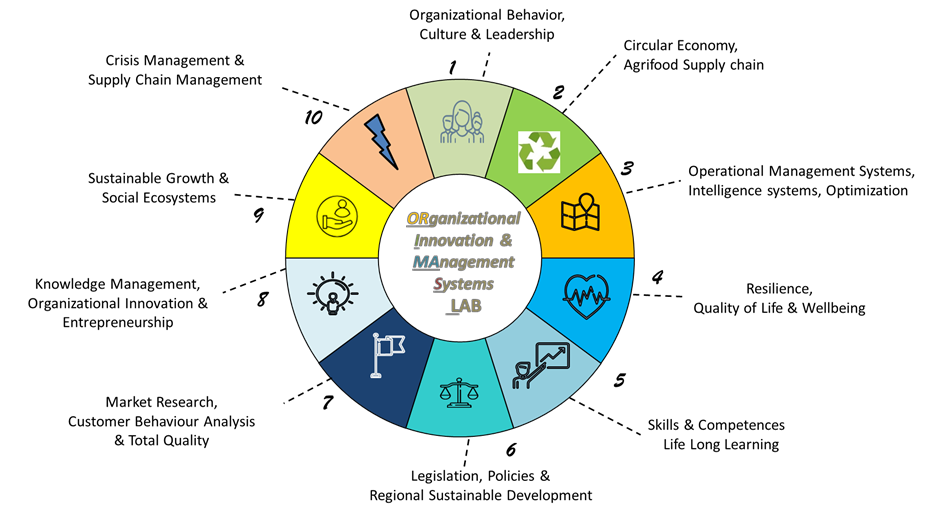
The aim of the Organizational Innovation and Management Systems (ORIMAS) Lab is to develop, implement and utilize groundbreaking research projects that combine multiple methodologies and tools, involve stakeholders, are linked to real-life scenarios and needs of local communities, trigger innovation and generate new knowledge with practical applications and social impact. ORIMAS is active in areas related to all stages of design, management, administration and development of sustainable and resilient systems covering the whole range of supply chains, as well as complementary activities at the associated living lab built upon towards ten orientations (i. organizational behaviour, culture and leadership, ii. Circular economy, agrifood supply chain, iii. Operational management, intelligent systems and optimisation, iv. Resilience, quality of life and wellbeing, v. skills & competencies, life long learning, vi, legislation, policies, regional sustainable development, vii. Market research, customer behaviour analysis and total quality, viii. Knowledge management, organizational innovation & entrepreneurship, ix. Sustainable growth and social enterprises, x. crisis management and supply chain management).
In particular, ORIMAS Lab operates as an innovative and vibrant ecosystem (Living Lab), with an interdisciplinary core, advanced technological infrastructure, applications and methodologies, developing high value services tailored to the needs of each user, business, network and local community, and focuses on:
- cultivating synergies with businesses, organizations, professional networks & associations, local authorities, social & green enterprises and start-ups for the provision of research, training and consultancy services.
- evaluating services, products & networks according to socio-technical, socio-economic, socio-ergonomic & socio-cognitive criteria.
- the design, development and promotion of interventions involving diverse stakeholder groups, across the full range of activities in each supply chain.
Faculty


Laboratory's Publications
Laboratory's Research Programs
MeCCAM: Measures of Climate Change Adaptation and Mitigation in European Fisheries
Smart Delivery Routing System in Urban Environment (Smart Delivery)
An innovative air network optimization tool for Greek islands' Public Service Obligation (IANOS)
SuCCEEs
The “Center of Supply Chain, Circular Economy και Entrepreneurship” (Κ.Εφ.Α.Κ.Ο.Ε – SuCCEEs), run by the Department of Agribusiness and Supply Chain Management, of the School of Applied Economics and Social Sciences at the Agricultural University of Athens, works on designing methods and products, as well as providing know-how and research and innovation services regarding the following subjects / disciplines:
– The Supply Chain, Green logistics, Reverse logistics, City logistics / Urban freight transport, The Agri-food Supply Chain, 3PL / 4PL in Supply Chain Management
– Circular economy, Sustainability
– Entrepreneurship, Organizational Innovation
– Management, Strategic Management, Quality Management, Process Management, Public Administration, Managing Cultural heritage, Change Management, Management of agricultural, educational and cultural units, and especially the Management of agricultural holdings / farms and organizations which process and manufacture food and agricultural products
– Management Systems, Production Systems, Manufacturing and Processing Systems, Smart Systems / Optimization, Traceability, Environmental Management Systems, Risk Management Systems (Hazard Analysis and Critical Control Points – HACCP)
– Shipping, Road and Air Transport Management, Port management, Maritime logistics, Aviation logistics
– Management of physical and digital files and information, Archiving / Filing, and classification, Supply Chain Information Systems, Management Information Systems, Laboratory Information Systems (LIS), Geographic information systems (GIS)
– Marketing, Market Research, Ε-business, Digital Marketing, Business communication, Business negotiations


